Are you interested in exploring historic homes? Here are the must-see historic houses in Baden-Württemberg:
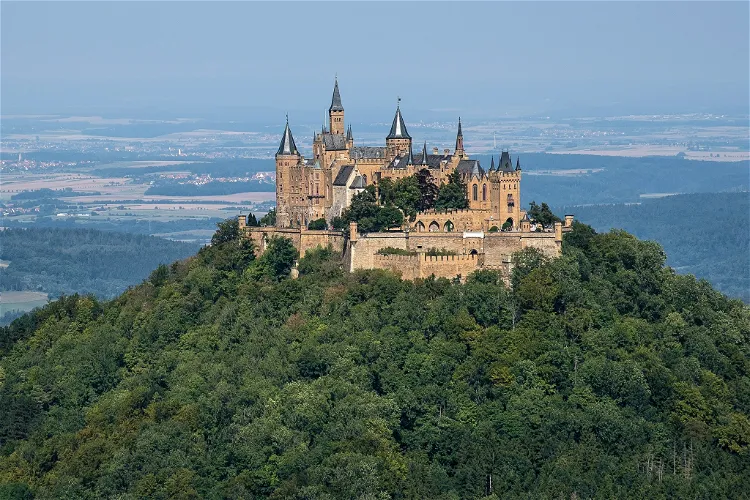
Hohenzollern Castle
ZimmernBurg Hohenzollern, a castle of the princely Hohenzollern family, is situated between the municipalities of Hechingen and Bisingen in Germany. The castle stands on an 855-meter high mountain, colloquially known as Zollernberg or Zoller. This location offers visitors a unique and breathtaking view of the surrounding landscape.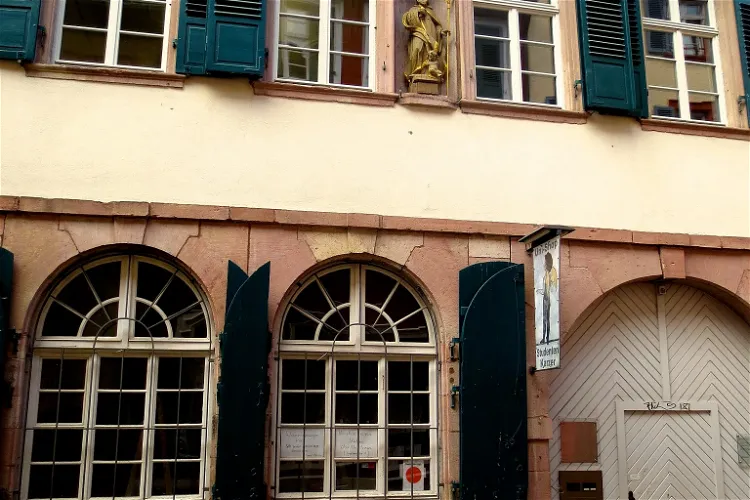
Studentenkarzer
HeidelbergToday, the Studentenkarzer is part of the museum of the history of the Old University of Heidelberg. It offers visitors an opportunity to explore the university's past and understand the unique student culture that existed. The museum is a testament to the university's rich academic history and the evolution of its disciplinary practices.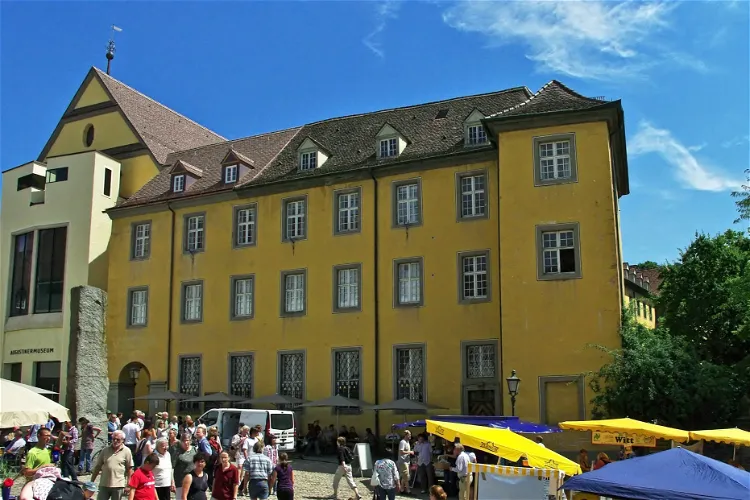
Augustiner Museum
Freiburg im BreisgauThe Augustinermuseum is the principal museum of Freiburg im Breisgau, located in the Baden-Württemberg region of Germany. It is a significant cultural institution in the city, offering a wide range of exhibits and collections for visitors to explore.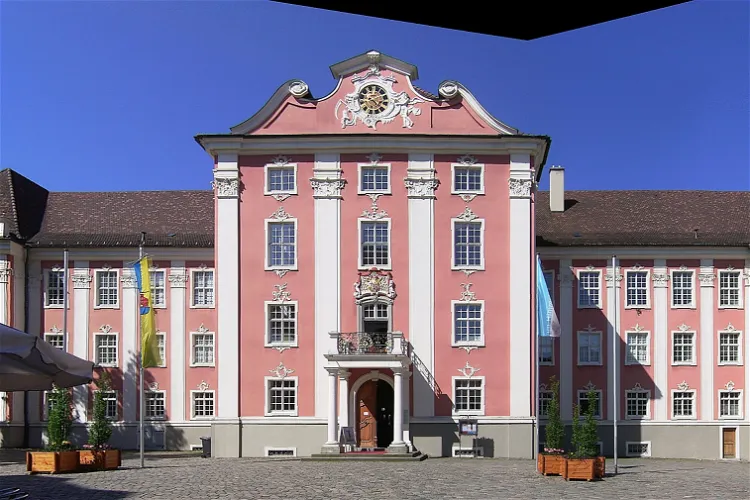
New Castle
MeersburgToday, the Neues Schloss Meersburg houses several museums, providing a diverse range of exhibits for tourists to explore. The Town Gallery (Städtische Galerie) and the Dornier Museum occupy the 2nd floor, while the Palace Museum of the Prince Bishops (Fürstbischöfliche Schlossmuseum) is located on the 3rd floor. The latter offers visitors the chance to view the residential and representation rooms of the prince bishops, refurnished with contemporary appointments from that era.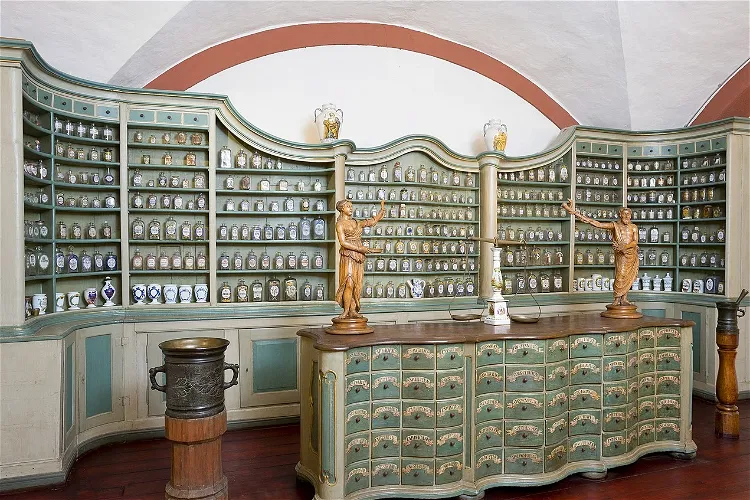
German Pharmacy Museum
HeidelbergThe German Pharmacy Museum in Heidelberg is a unique institution dedicated to the history of pharmacy. It boasts extensive collections that cover the entire German-speaking region from antiquity to the 21st century. This museum provides a comprehensive overview of the evolution of pharmacy and medicine, making it a fascinating destination for anyone interested in history, science, or medicine.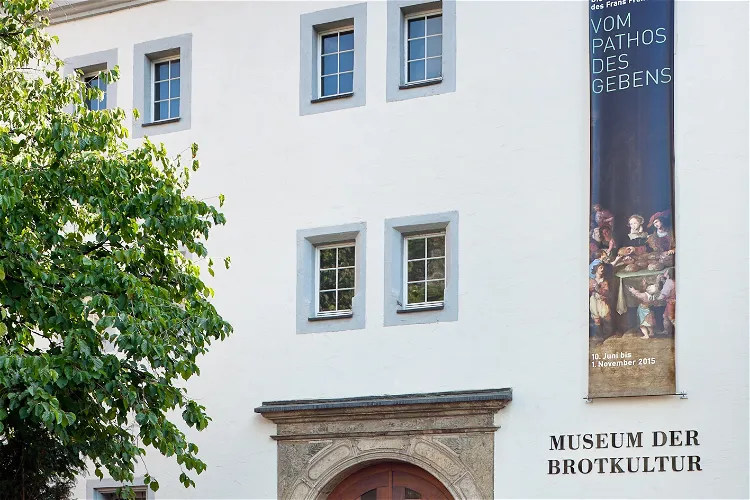
Museum Bread and Art
UlmThe Museum Brot und Kunst – Forum Welternährung in Ulm is a unique knowledge museum that showcases the importance of grain, bread, and culture in human development. It provides a comprehensive understanding of the natural, technical, and social historical aspects of bread production, as well as the symbolism of bread as a metaphor for life in Jewish-Christian thought.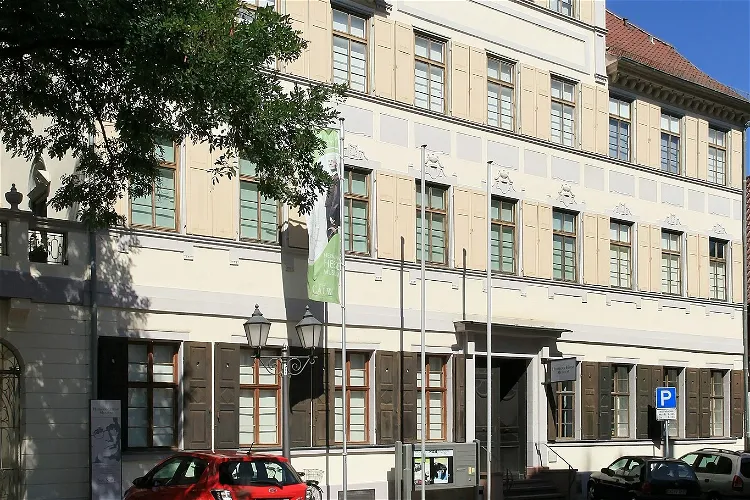
Hermann-Hesse-Museum
CalwThe Hermann-Hesse-Museum in Calw is dedicated to documenting the life and work of the renowned writer and Nobel laureate in Literature, Hermann Hesse. The museum offers a comprehensive insight into Hesse's life, his literary works, and his significant contributions to literature. It is an ideal destination for literature enthusiasts and those interested in learning more about this influential figure.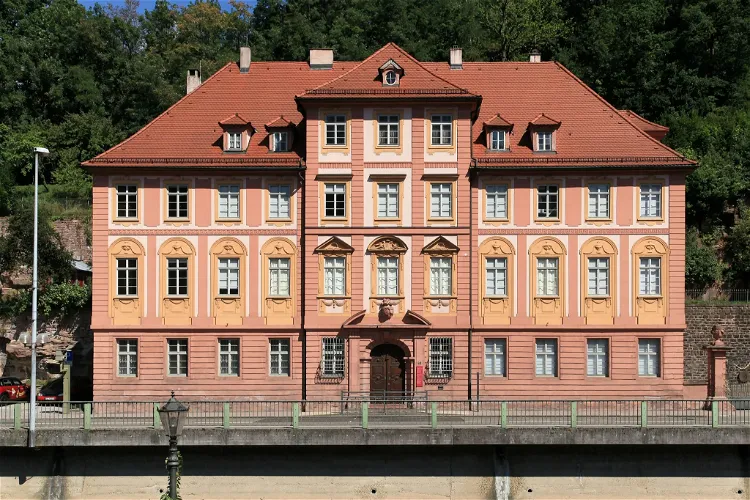
Palais Vischer
CalwPalais Vischer, a neoclassical city palace, is now a museum that showcases the history of the city of Calw in Baden-Württemberg. It provides a unique opportunity for visitors to delve into the rich past of this German city, offering a comprehensive understanding of its historical context and development.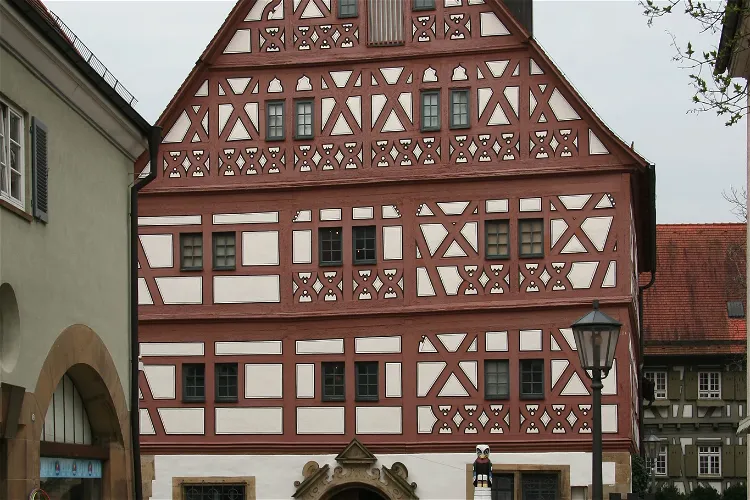
Stadtmuseum Hornmoldhaus
Bietigheim-BissingenThe Hornmoldhaus in Bietigheim stands as a testament to the architectural prowess of the Renaissance period in southern Germany. It is one of the best-preserved citizen houses from this era, offering a unique glimpse into the past. The house's intricate design and well-preserved state make it a significant historical site.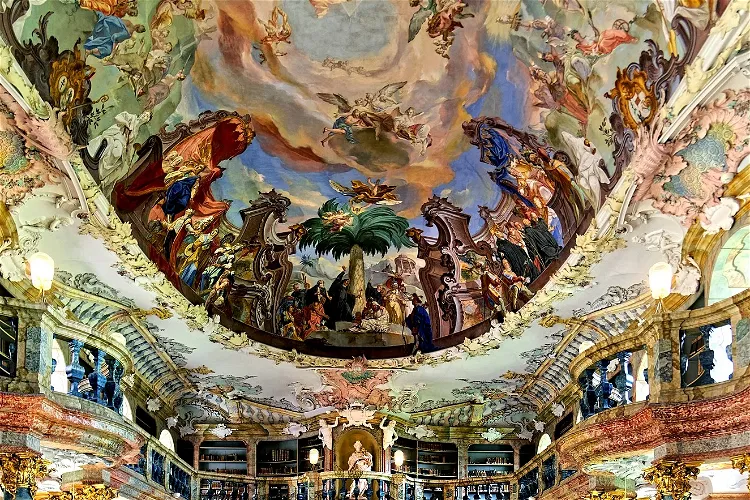
Wiblingen Abbey
UlmWiblingen Abbey, located in Ulm, was once a German Benedictine abbey. Today, the abbey church, which has been converted into a basilica, is one of the preserved structures of the abbey. The abbey was also used as military barracks in the past. This historical site offers a glimpse into the rich history of the region.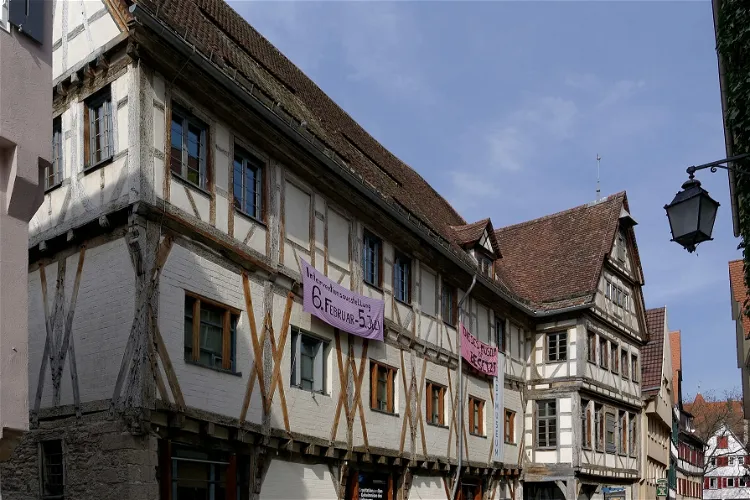
Stadtmuseum Tübingen
TübingenThe Stadtmuseum Tübingen is located in a former granary that is over 500 years old. This historic building is situated in the old town of Tübingen, adding to the charm and historical significance of the museum. Visitors can appreciate the architecture of the building while exploring the various exhibits inside.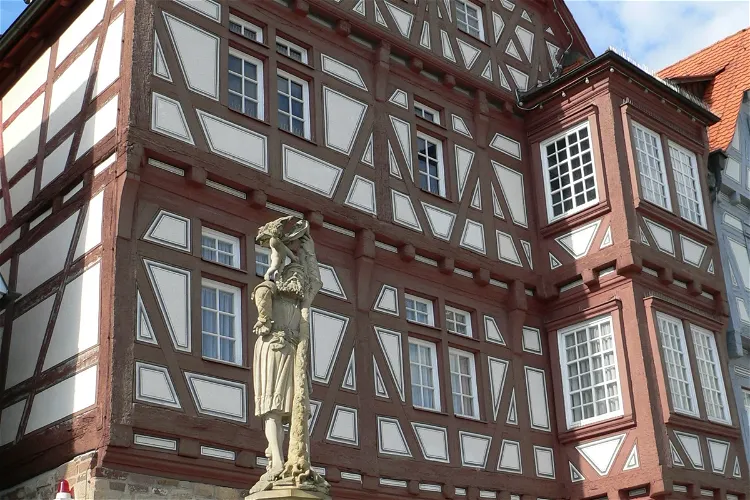
Deutsches Fleischermuseum
BöblingenThe Deutsches Fleischermuseum, located in the heart of Böblingen, is housed in a 16th-century building known as the former Vogtshaus of the city. This historic building adds a unique charm to the museum, making it an interesting destination for tourists who appreciate history and architecture.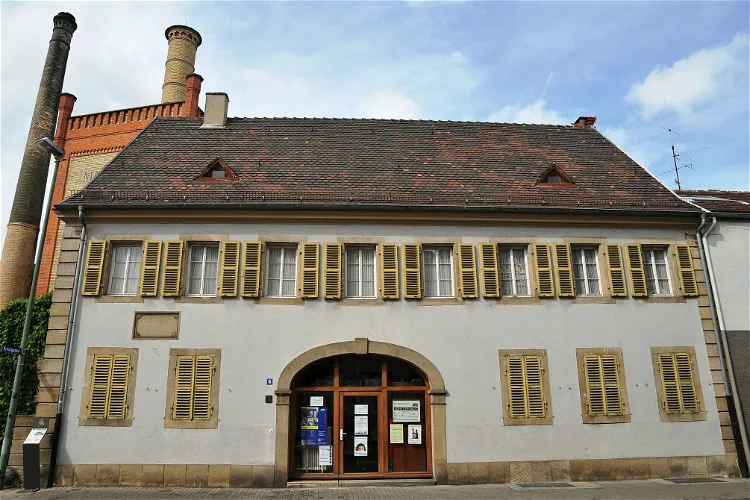
Schillerhaus
MannheimThe Schillerhaus, located in the Ludwigshafen district of Oggersheim, is a significant historical site. It was here that the renowned German poet, philosopher, physician, historian, and playwright Friedrich Schiller stayed under the alias 'Dr. Schmidt' from October 13 to November 30, 1782. This period in Schiller's life was marked by his flight from the Duchy of Württemberg to Mannheim in the Electorate of Palatinate-Bavaria, making the Schillerhaus a key location in his personal history.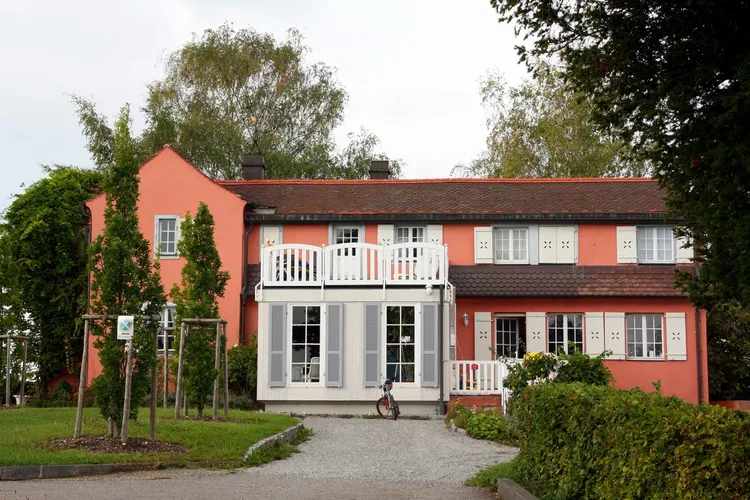
Little House, Meersburg
MeersburgThe Little House, also known as the Prince's House (Fürstenhäusle), is a historic house and museum located in the picturesque town of Meersburg, Germany. It offers a stunning view of Lake Constance, making it a scenic spot for tourists. The house carries a rich history and is a significant cultural landmark in the region.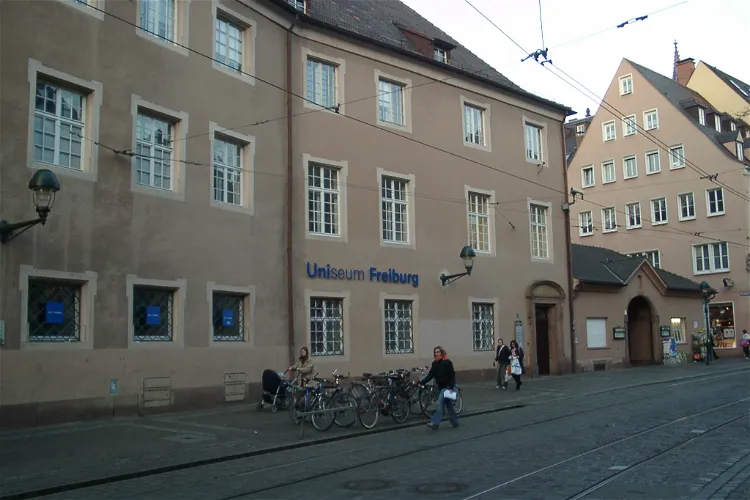
Uniseum
Freiburg im BreisgauThe Uniseum is the University Museum of the Albert-Ludwigs-University in Freiburg im Breisgau. It was opened in July 2004 and provides a comprehensive overview of the university's history. The museum is a great place to learn about the development of the university since its foundation in 1457.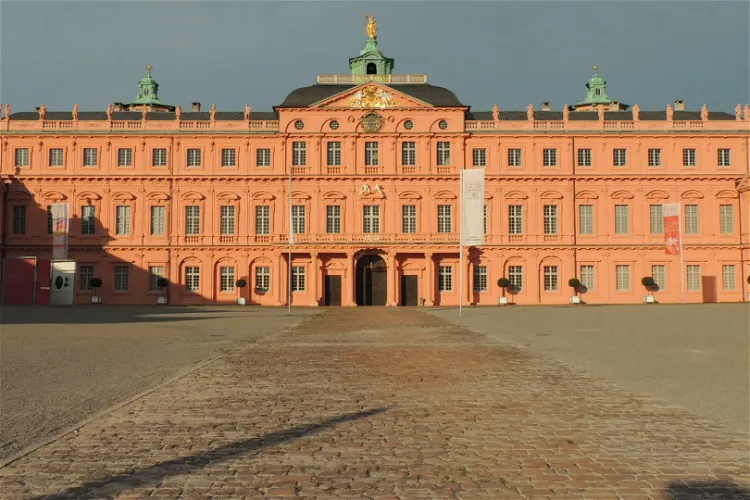
Schloss Rastatt
RastattSchloss Rastatt, situated in Baden, Germany, is a historical site that was once the residence of the Margraves of Baden. The castle was constructed in 1700 by the Italian architect Domenico Egidio Rossi for Margrave Louis William of Baden. This historical context adds to the rich tapestry of the castle's past, making it a fascinating destination for those interested in history and architecture.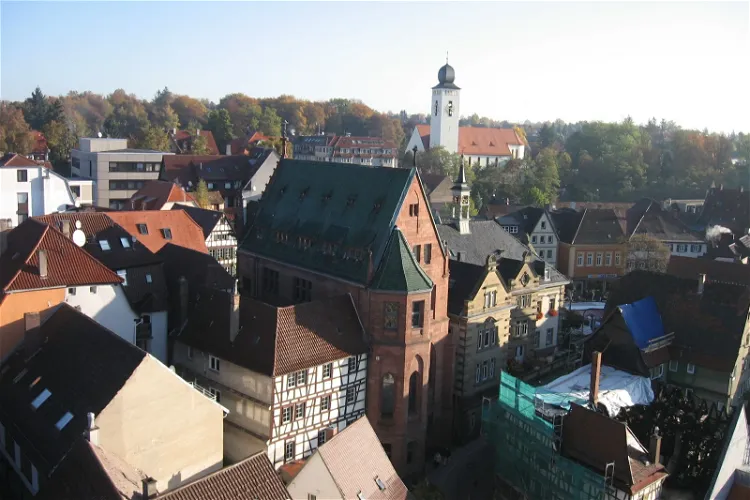
European Melanchthon Academy of Bretten
BrettenThe Melanchthonhaus in Bretten serves as a museum and research institution dedicated to the history of the Reformation and the life of Philipp Melanchthon. It offers a unique insight into the life and work of this important figure of the Reformation, making it a significant destination for those interested in history and religion.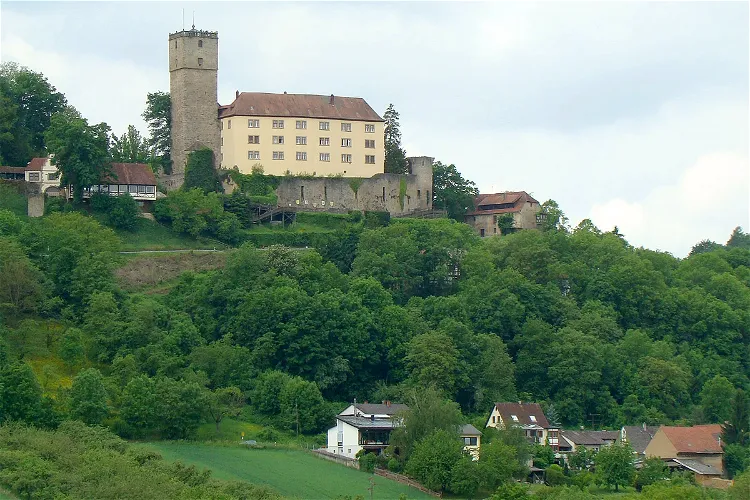
Burg Guttenberg Haßmersheim
NeckarmühlbachBurg Guttenberg is a late medieval castle situated above Neckarmühlbach, a district of Haßmersheim in the Neckar-Odenwald district in Baden-Württemberg. The castle has never been destroyed and has been continuously inhabited for almost 800 years. Since the mid-15th century, it has been occupied by the Gemmingen-Guttenberg line of the Barons of Gemmingen.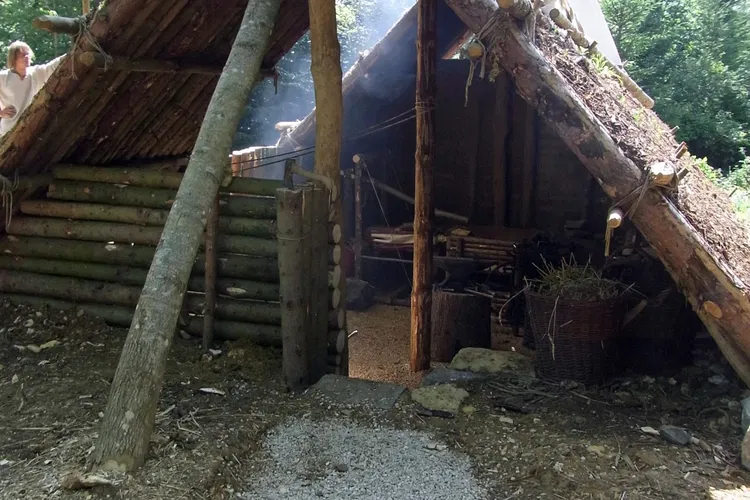
Campus Galli
MeßkirchCampus Galli is a unique project located in Meßkirch, Baden-Württemberg, Germany. It is a Carolingian monastic community that is currently under construction. The project aims to build a medieval monastery according to the early ninth-century Plan of Saint Gall using techniques from that era. This makes it a living history site where visitors can witness the construction process and learn about the historical techniques used.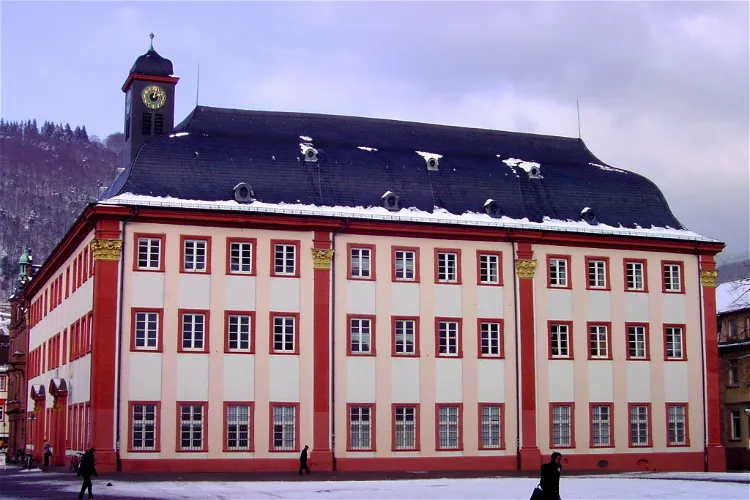
Old University
HeidelbergToday, the Old University houses the Rectorate of the University and the University Museum, which was established in 1996. The museum documents the development history of the Ruprecht-Karls-University, providing visitors with a comprehensive understanding of the university's evolution over the centuries.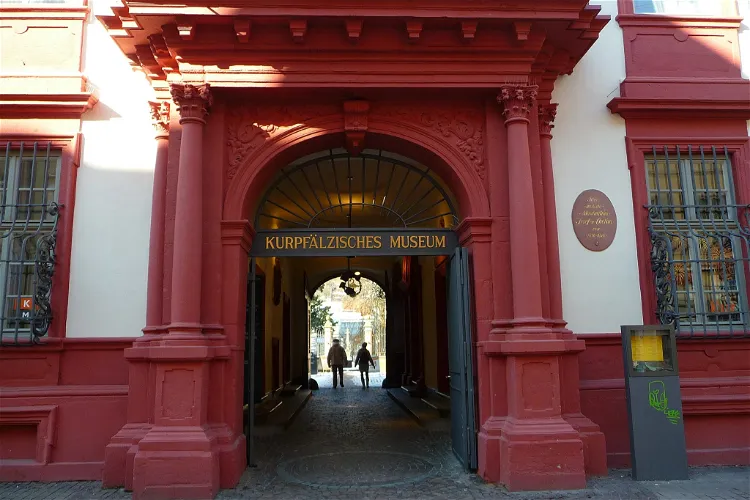
Palatinate Museum
HeidelbergThe Palatinate Museum, also known as the Kurpfälzisches Museum, is a renowned museum of art and archaeology situated in Heidelberg, Germany. The museum is housed in the historic Palais Morass, adding to its charm and appeal.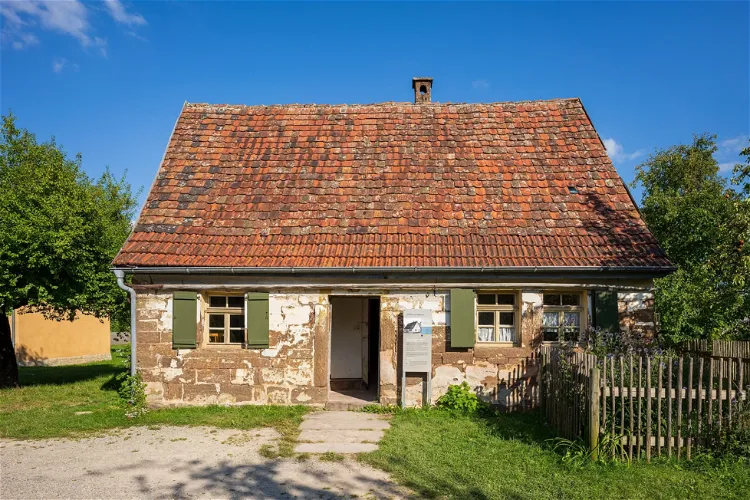
Hohenloher Freilandmuseum
Schwäbisch HallThe Hohenloher Freilandmuseum Wackershofen is a regional open-air museum located in the hamlet of Wackershofen, part of Schwäbisch Hall. Opened in 1983, the museum showcases old buildings from the northeast of Baden-Württemberg, primarily from the districts of Hohenlohe and Schwäbisch Hall. It also features structures from the Main-Tauber district, the Heilbronn district, the Rems-Murr and Ostalbkreis, as well as the districts of Heidenheim and Ludwigsburg.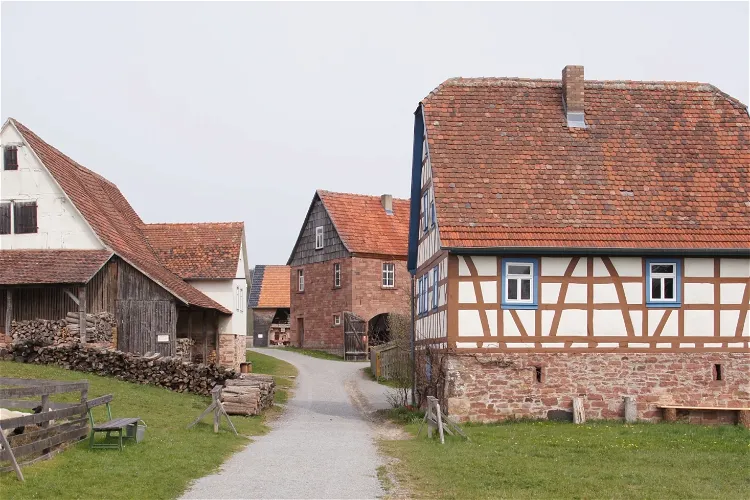
Odenwälder Freilandmuseum
WalldürnThe Odenwälder Freilandmuseum is an open-air museum located in Gottersdorf, a district of Walldürn. It is managed by the Förderverein Odenwälder Freilandmuseum e.V. The museum is open to the public from the 1st of April until the end of October each year, providing a unique opportunity to explore the history and culture of the region.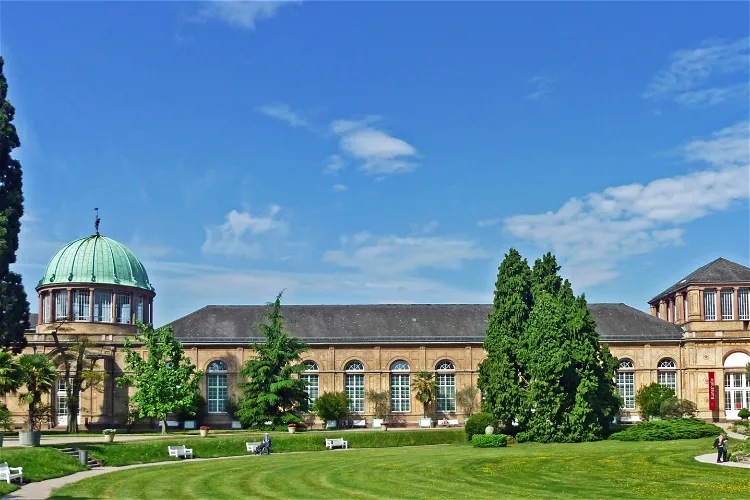
Orangerie
KarlsruheThe Orangerie in Karlsruhe, located in Baden-Württemberg, Germany, is a historical site that was once the orangery of the city's botanical garden. Today, it serves a new purpose as an exhibition hall for the Kunsthalle Karlsruhe, showcasing works from the 20th and 21st centuries.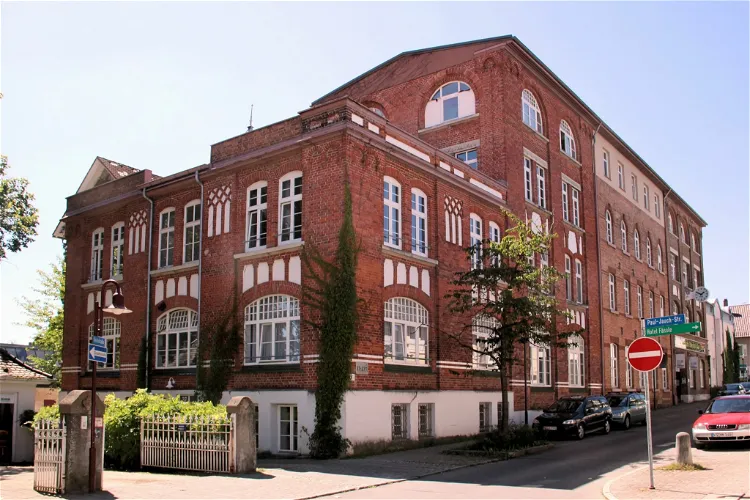
Museum of Clockmaking
Villingen-SchwenningenThe Museum of Clockmaking, also known as Uhrenindustriemuseum in German, is situated in the town of Villingen-Schwenningen in Germany. The museum is dedicated to preserving and showcasing the history of the clockmaking industry that was once a significant part of the town's identity. It provides a unique insight into the town's past and the evolution of the clockmaking industry.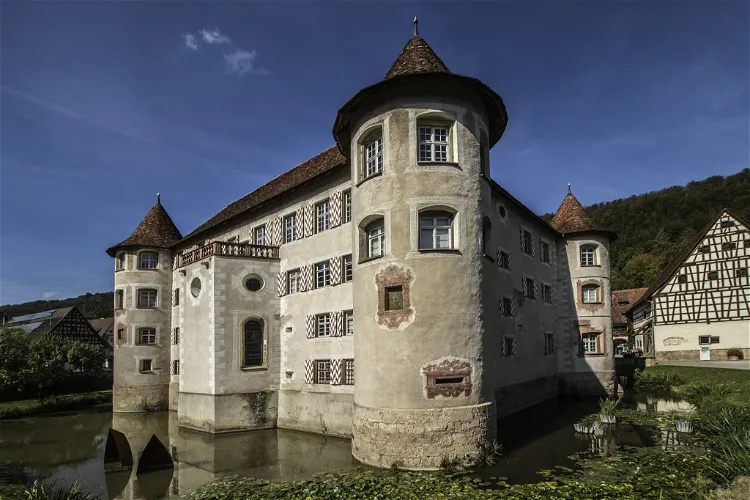
Wasserschloss Glatt
Sulz am NeckarWasserschloss Glatt is a historic site located in the village of Glatt, a district of Sulz am Neckar in the valley of Glatt, Rottweil district, Baden-Württemberg. It is recognized as one of the oldest Renaissance castles in southern Germany and is among the few preserved moated castles in the state of Baden-Württemberg. This makes it a significant landmark for those interested in history and architecture.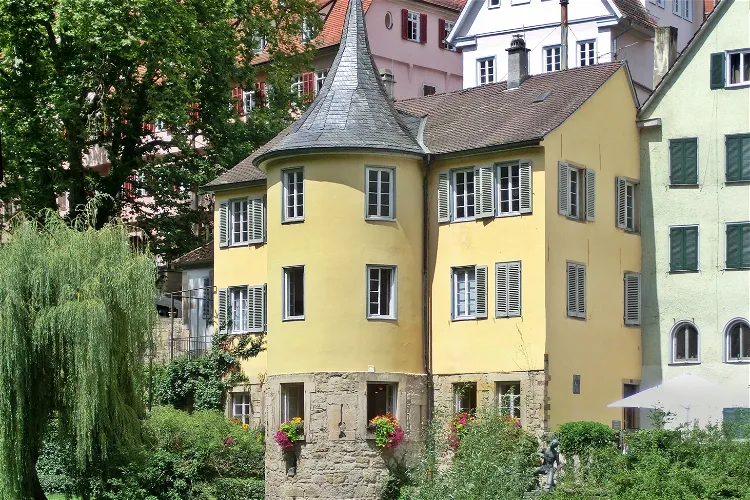
Hölderlin's Tower
TübingenThe Hölderlin Tower in Tübingen is a significant historical site named after the renowned poet Friedrich Hölderlin. He resided in this tower from May 3, 1807, until his death in 1843. This connection to the poet makes the tower a place of interest for literature enthusiasts and those interested in Hölderlin's life and works.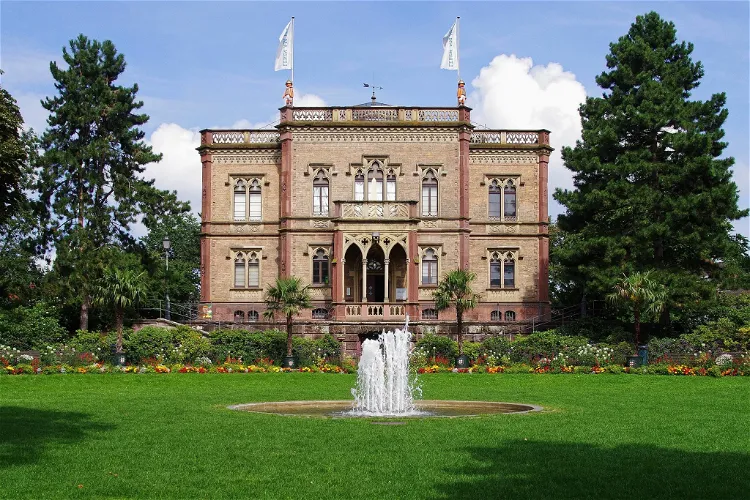
Colombischlössle Archeological Museum
Freiburg im BreisgauThe Colombischlössle Archeological Museum is situated in the neo-Gothic villa Colombischlössle in Freiburg im Breisgau. This location adds a unique architectural charm to the museum, enhancing the overall visitor experience. The villa itself is a sight to behold, with its intricate design and historical significance.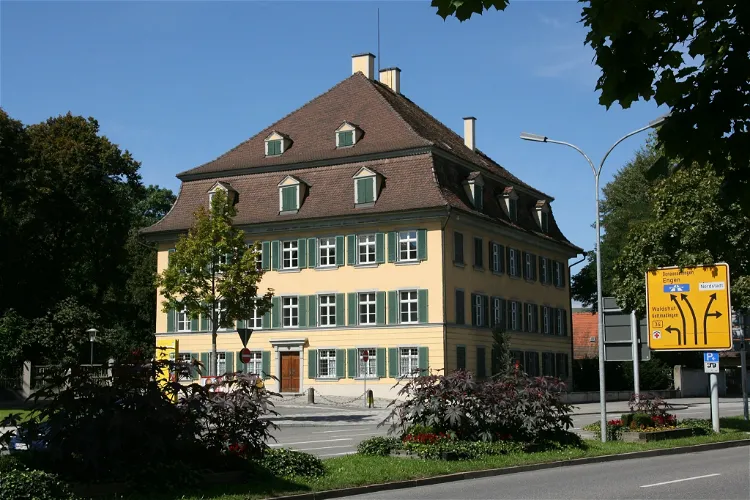
Archäologisches Hegau-Museum
Singen (Hohentwiel)The Oberes Schloss Singen, also known as Schloss Singen or Enzenbergsches Schloss, is a significant historical site located in the city of Singen. It is situated in close proximity to the town hall, in the district of Konstanz in Baden-Württemberg. This castle offers a glimpse into the rich history and architectural grandeur of the region.
Deutsches Zweirad- und NSU-Museum
NeckarsulmThe Deutsches Zweirad- und NSU-Museum, located in Neckarsulm, Germany, is home to a vast collection of historic motorcycles and bicycles. The museum is housed in a five-story split-level building that dates back to the 13th Century, adding a touch of historical charm to the overall experience.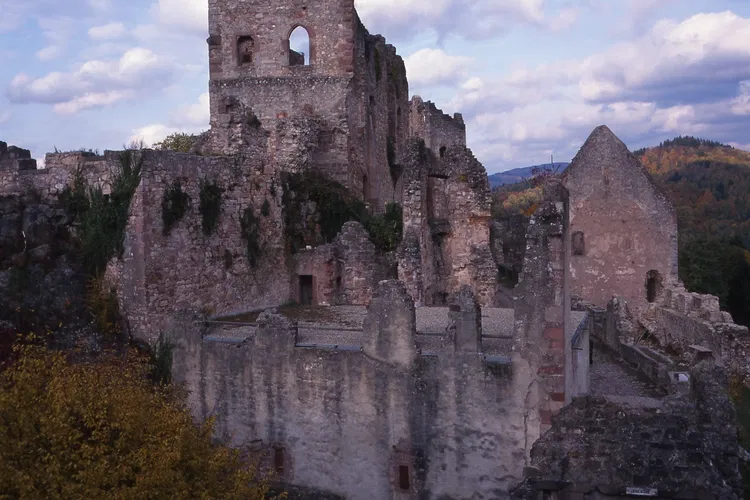
Hochburg
Emmendingen (Kernstadt)The Hochburg, also known as the 'high castle', is a historical castle ruin located between the city of Emmendingen and the village of Sexau in the Baden region of southwest Germany. This strategic location offers visitors a unique opportunity to explore the rich history of the region while enjoying the scenic beauty of the surrounding landscape.
Wehrgeschichtliches Museum Rastatt
RastattThe Wehrgeschichtliche Museum Rastatt (WGM) is a museum dedicated to modern German military history. It is situated in the south wing of the Rastatt Residence Palace, a significant historical site in itself. The museum provides a comprehensive overview of the military history of Germany, making it an ideal destination for history enthusiasts.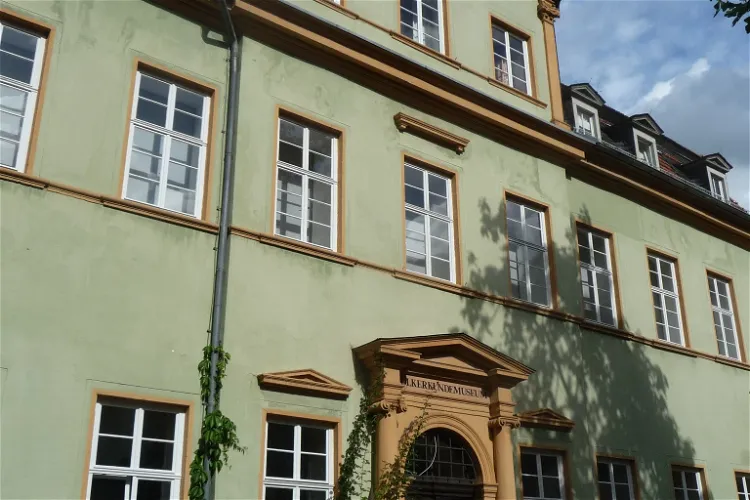
Völkerkundemuseum
HeidelbergThe Völkerkundemuseum in Heidelberg, part of the J. and E. von Portheim Foundation, is home to a diverse range of collections. These collections focus on the religion, art, and everyday life of the regions of Asia, Africa, and Oceania. This provides visitors with a unique opportunity to explore and understand the cultural diversity of these regions.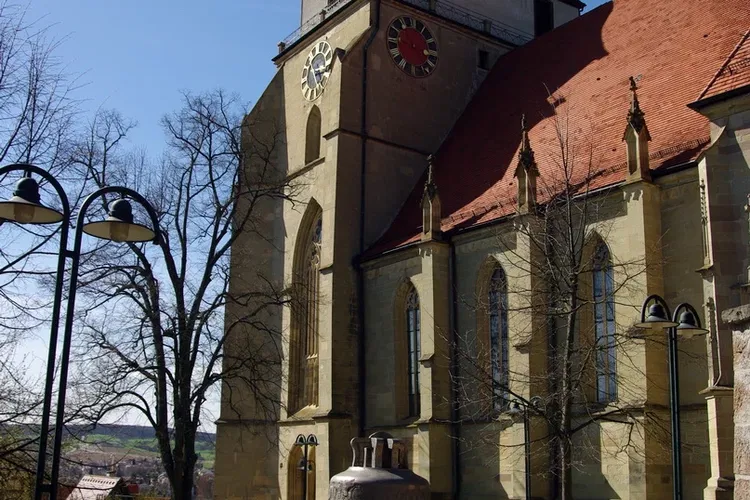
Glockenmuseum Stiftskirche Herrenberg
HerrenbergThe Glockenmuseum Herrenberg, also known as the Glockenmuseum Stiftskirche Herrenberg, is situated within the Evangelical Collegiate Church in Herrenberg. This location adds a unique historical and cultural context to the museum, making it an interesting destination for tourists interested in history, culture, and architecture.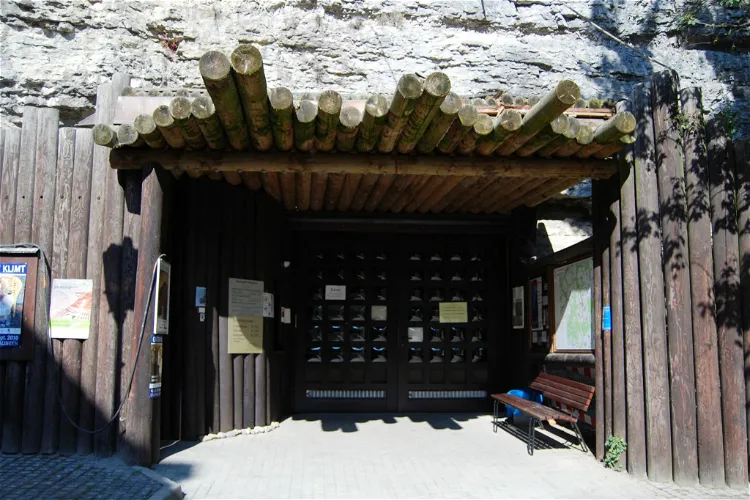
Atomkeller Museum
HaigerlochThe Atomkeller Museum is a unique destination for those interested in nuclear technology. It is situated in a rock cellar beneath the Haigerloch Castle in the town of Haigerloch, Baden-Württemberg. This location not only provides a unique setting for the museum but also adds to the historical significance of the exhibits.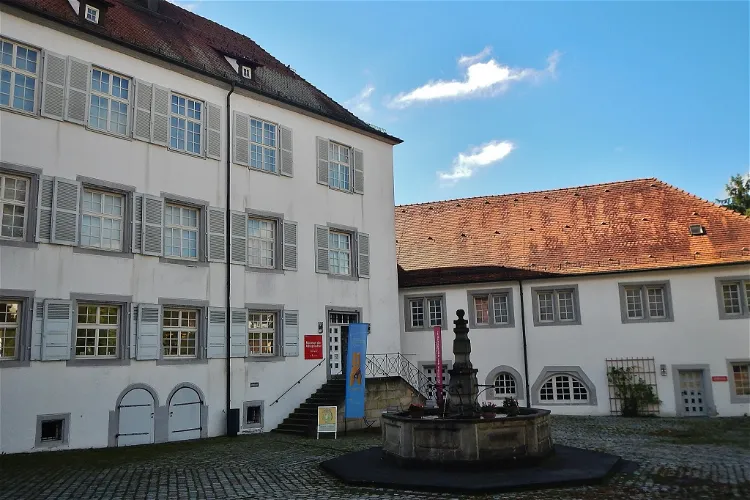
Museum of everyday culture
WaldenbuchThe Museum of Everyday Culture, located in Waldenbuch, Germany, is a significant branch of the Landesmuseum Württemberg. This museum is dedicated to cultural history, showcasing a wide range of topics from traditional folk art to modern pop culture. It is one of the most important museums of folk culture in Germany, making it a worthwhile destination for those interested in understanding the cultural evolution of the region.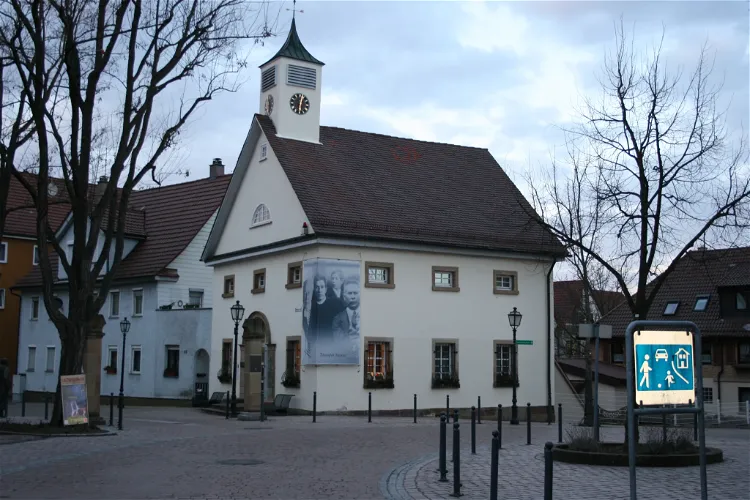
Theodor Heuss Museum der Stadt Brackenheim
BrackenheimThe Theodor-Heuss-Museum in Brackenheim is dedicated to the life and work of the first Federal President of Germany, Theodor Heuss. Born in Brackenheim on January 31, 1884, Heuss had a significant impact on the country's history. The museum showcases various aspects of his life, including his time as Federal President and his contributions as a politician, statesman, journalist, and writer.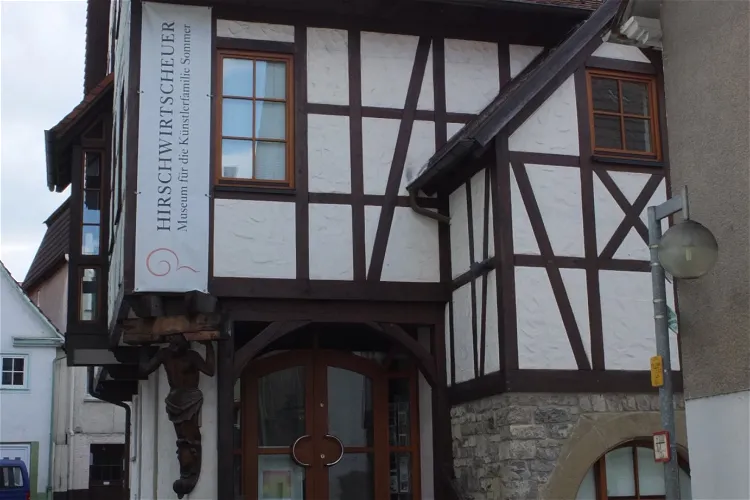
Hirschwirtscheuer
KünzelsauThe Hirschwirtscheuer is an art museum located in Künzelsau. It is financially supported by Adolf Würth GmbH & Co. KG, a prominent company in the region. This museum is a significant cultural institution in the area, offering a variety of art exhibits for visitors to explore.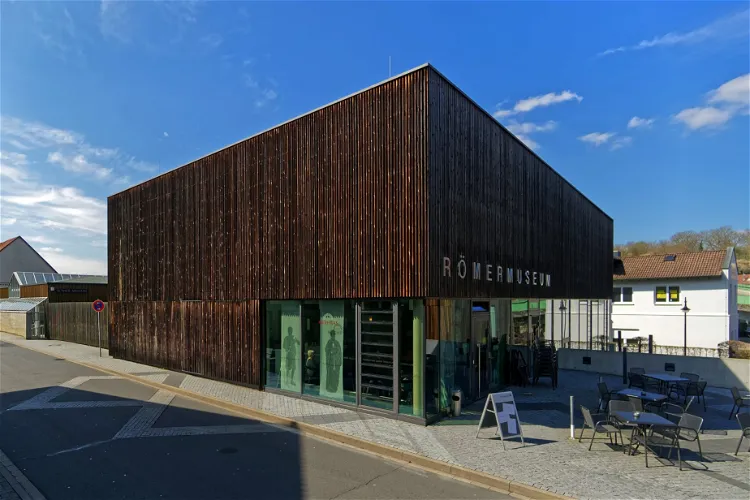
Römermuseum Osterburken
OsterburkenThe Römermuseum Osterburken is a branch of the Archaeological State Museum of Baden-Württemberg, located in Osterburken. It serves as one of the supra-regional information centers for the UNESCO World Heritage Upper Germanic-Rhaetian Limes in the state of Baden-Württemberg. This makes it a significant location for those interested in archaeology and history, particularly of the Roman era.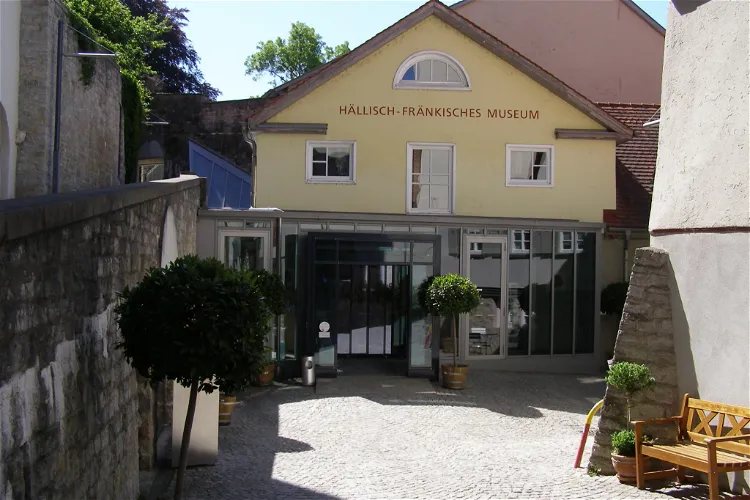
Hällisch-Fränkisches Museum
Schwäbisch HallThe Hällisch-Fränkische Museum (HFM) is a cultural and historical museum situated in the heart of Schwäbisch Hall. It offers a comprehensive insight into the history, art, and culture of the former imperial city of Hall and its surroundings. The museum spans over 3000 m² of exhibition space, making it a significant cultural destination in the region.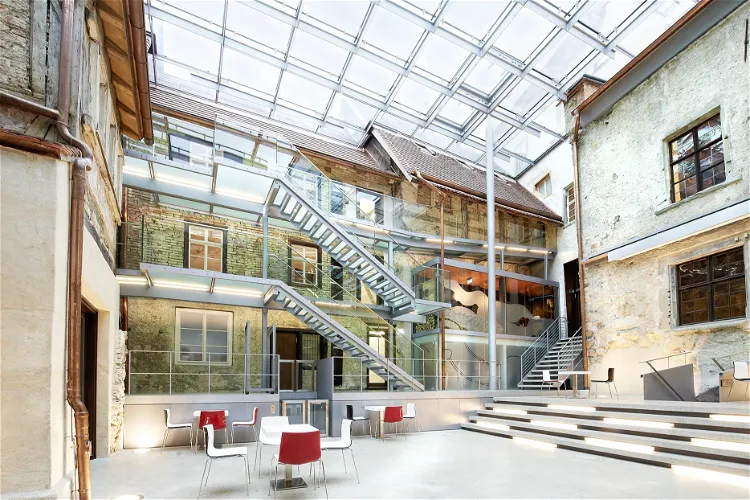
Museum Humpis-Quartier
RavensburgThe Humpis-Quartier Museum is a significant cultural and historical museum located in Ravensburg. It is situated in one of the best-preserved late medieval residential quarters in southern Germany, offering a unique glimpse into the past. The museum is housed in a complex of seven buildings, which are grouped around a courtyard. This location is not only historically significant but also provides a unique atmosphere for visitors.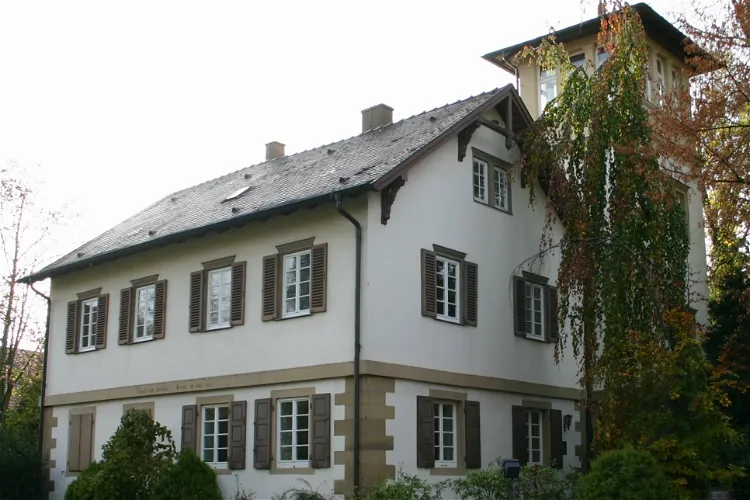
Kernerhaus
WeinsbergThe Kernerhaus in Weinsberg served as the residence of the Swabian poet and doctor Justinus Kerner (1786–1862). This historical site offers a glimpse into the life of this significant figure in Swabian Romanticism, providing a unique opportunity for visitors to immerse themselves in the cultural and historical context of the period.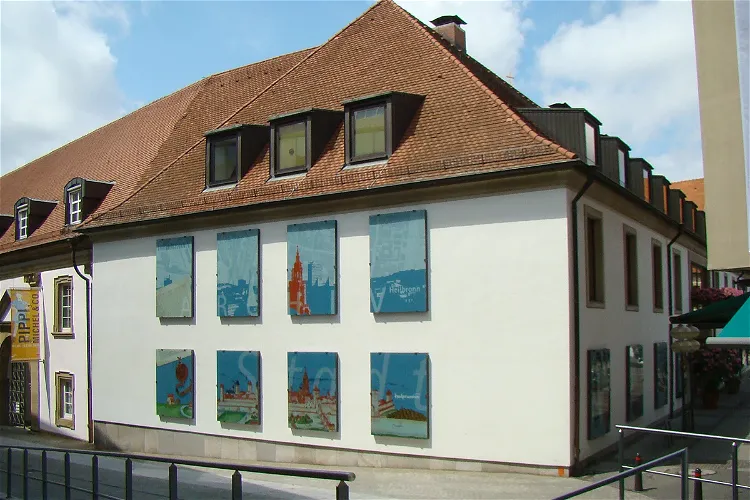
Haus der Stadtgeschichte
HeilbronnThe Haus der Stadtgeschichte, also known as Otto Rettenmaier Haus, in Heilbronn is a significant location for those interested in the history of the city. It houses the city archive and offers a range of services including research, documentation, and museum exhibits. This makes it a valuable resource for tourists wanting to delve into the city's past.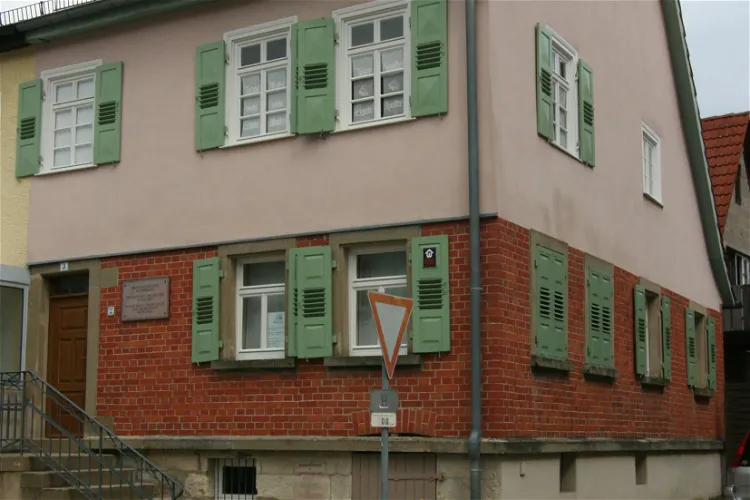
Bauspar-Museum
WüstenrotThe Bauspar-Museum, which opened its doors in 1996, is a unique institution dedicated to the history and development of home savings. It is located in the Georg-Kropp-Haus in Wüstenrot, in the Heilbronn district. This museum offers a deep dive into the world of finance and savings, providing a unique perspective on the evolution of these concepts over time.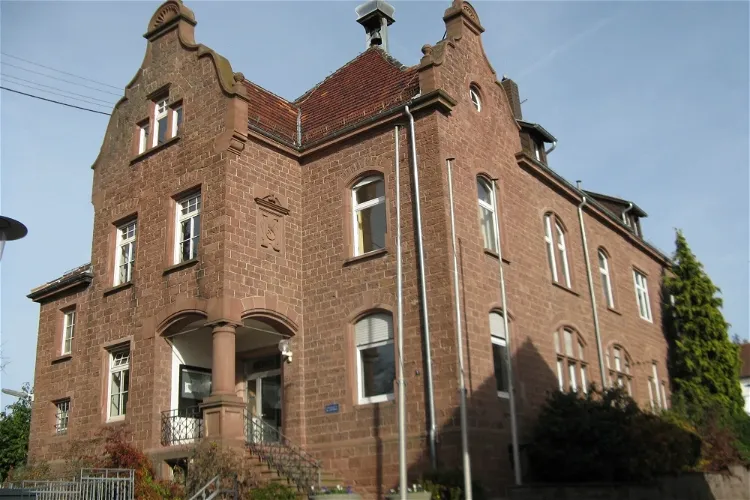
Badisches School Museum Karlsruhe
KarlsruheThe Badisches Schulmuseum, situated in the Waldenserschule in the Palmbach district of Karlsruhe, offers a unique insight into the history of education in the region. Operated by the Badisches Schulmuseum Karlsruhe e.V. association, the museum is a testament to the evolution of learning and teaching methods over the years.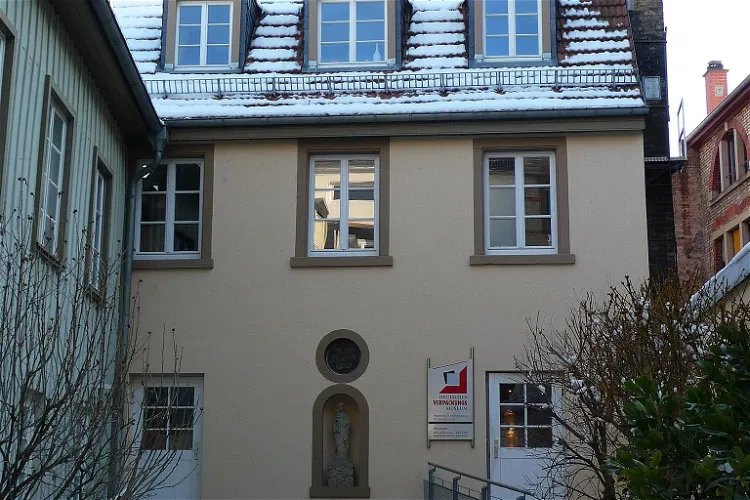
Deutsches Verpackungsmuseum
HeidelbergThe Deutsches Verpackungs-Museum, located in Heidelberg, is a unique cultural history museum that was established in 1997. It is the first and only museum of its kind, dedicated to showcasing the cultural significance of packaging. This museum provides a unique perspective on the evolution of packaging and its impact on society and culture.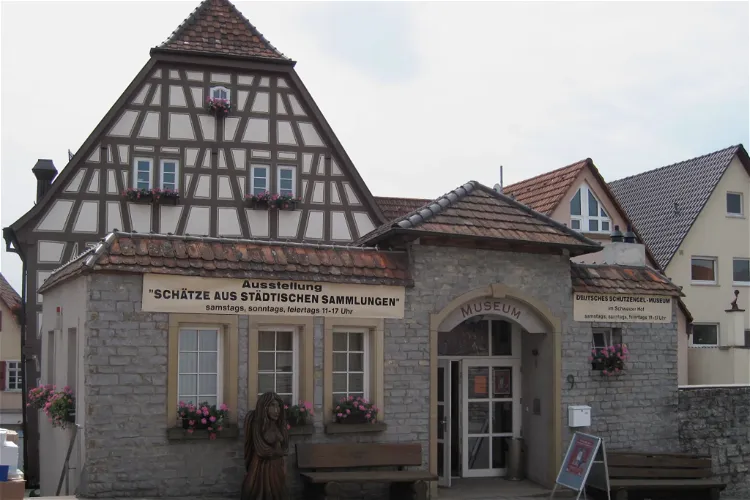
Museum im Schweizer Hof
BrettenThe Museum im Schweizer Hof, situated in Bretten, Baden-Württemberg, was inaugurated in June 2002. It is housed in a half-timbered building, the 'Schweizer Hof', which is a typical example of the architecture of Bretten's reconstruction period after the great city fire of 1689. The museum is under municipal ownership and offers a glimpse into the city's rich history.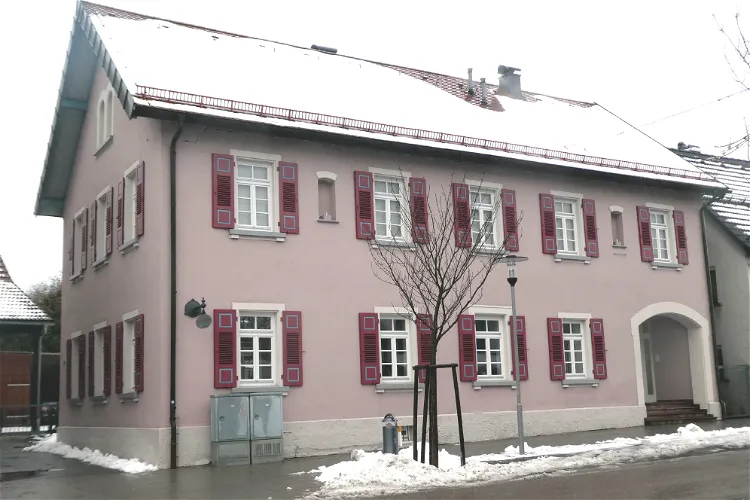
Heimatmuseum im Schillerhaus Oberkochen
OberkochenThe Schillerhaus serves as the local museum of Oberkochen. Despite its name, it's important to note that there is no direct biographical connection between the museum and the renowned poet Friedrich Schiller. The name was chosen to honor the great Swabian poet, not because he had any specific ties to the town or the building.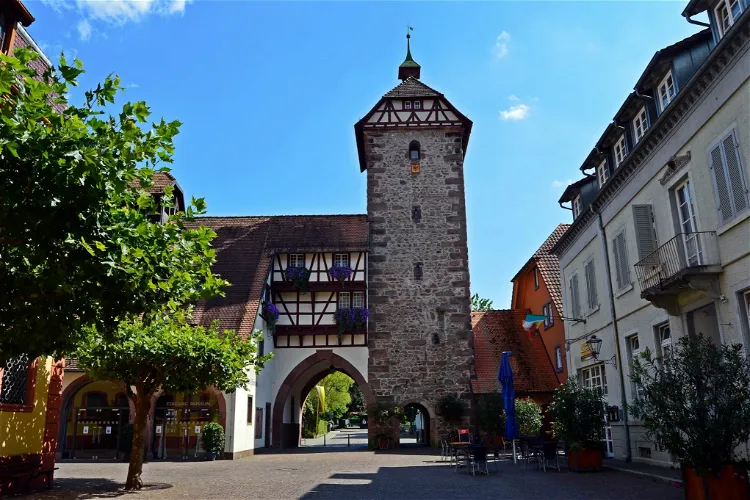
Storchenturm-Museum
Zell am HarmersbachThe Storchenturm, a medieval gate tower, is located in Zell am Harmersbach in the Black Forest. It was part of the former city fortification and now serves as a local history museum. This historical structure offers a glimpse into the past and provides an opportunity to learn about the region's history.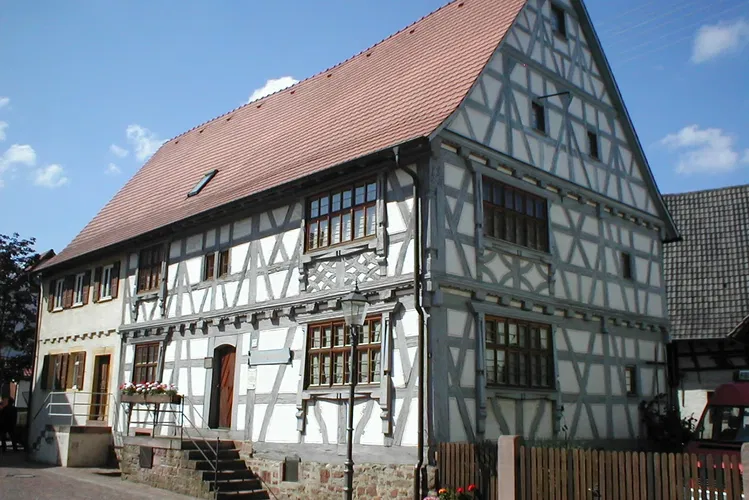
Heimatmuseum Epfenbach
EpfenbachThe Fronhof is a half-timbered house located in Epfenbach, a municipality in the Rhein-Neckar district in northern Baden-Württemberg. This historic building was constructed at the beginning of the 18th century, making it a significant part of the town's architectural heritage.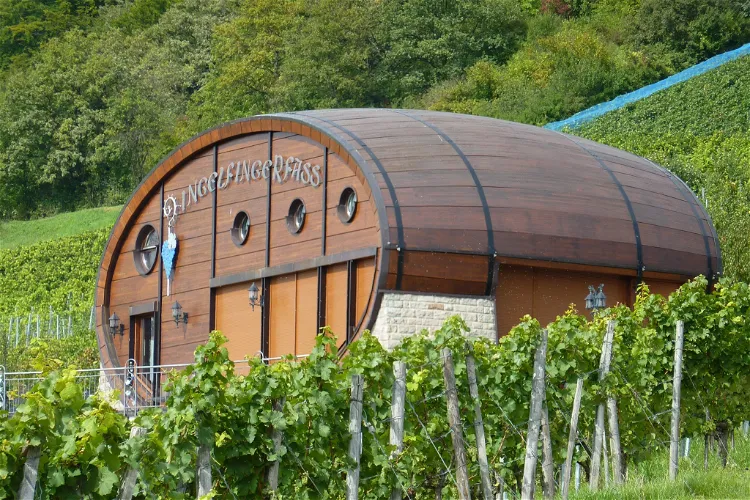
Ingelfinger Fass
IngelfingenThe Ingelfinger Fass is a unique wine museum located in Ingelfingen, in the Hohenlohe district of Baden-Württemberg. It is shaped like a barrel and is considered the second largest wooden barrel in Europe. This distinctive feature makes it a notable point of interest for tourists visiting the region.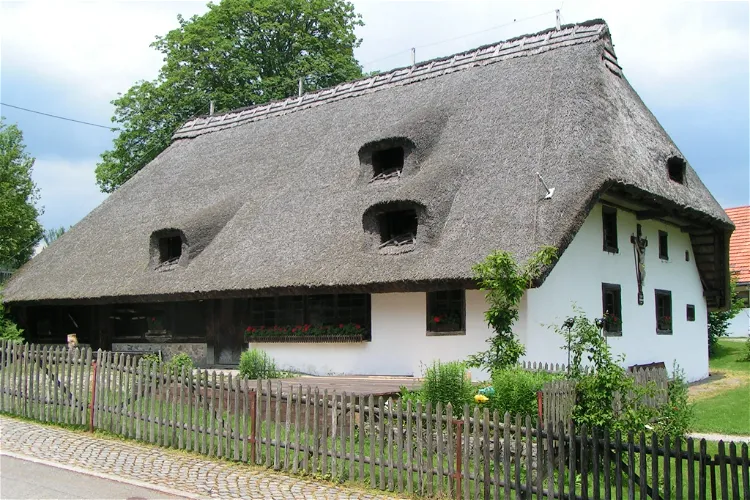
Freilichtmuseum Klausenhof
HerrischriedThe Freilichtmuseum Klausenhof is an open-air museum situated in Großherrischwand, a municipality of Herrischried in the Hotzenwald. It is located within the Waldshut district in the southern Black Forest. This location offers a unique blend of natural beauty and historical significance, making it an interesting destination for tourists.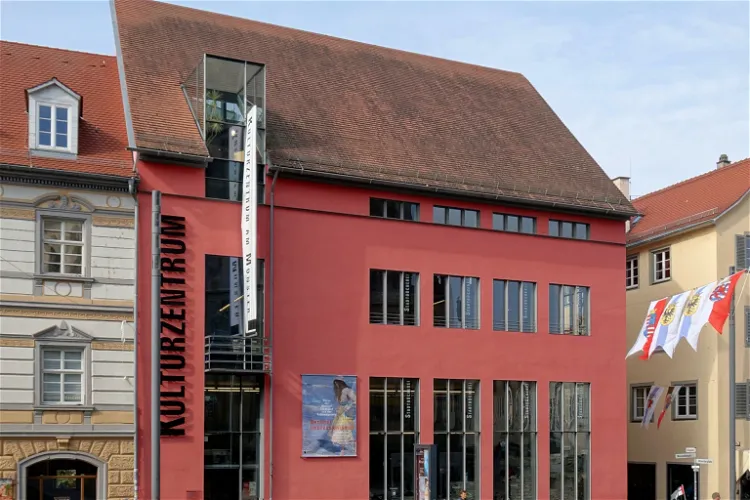
Städtische Wessenberg Galerie
ConstanceThe Städtische Wessenberg-Galerie, located in Constance on Lake Constance, is an art museum that primarily focuses on temporary exhibitions. The art showcased in these exhibitions is predominantly from the 19th and 20th centuries, originating from Southwest Germany and the Lake Constance region. This provides visitors with a unique opportunity to explore the rich artistic heritage of this specific geographical area.
Carl-Julius-Weber-Gedenkstube
LangenburgThe Carl-Julius-Weber-Gedenkstube is a small literature museum that was established in 1987. It is located in the town hall of Langenburg on the Jagst. The museum is dedicated to the writer and satirist Karl Julius Weber, who was born in this house. It is a place where visitors can learn about Weber's life and work, and see the environment in which he grew up.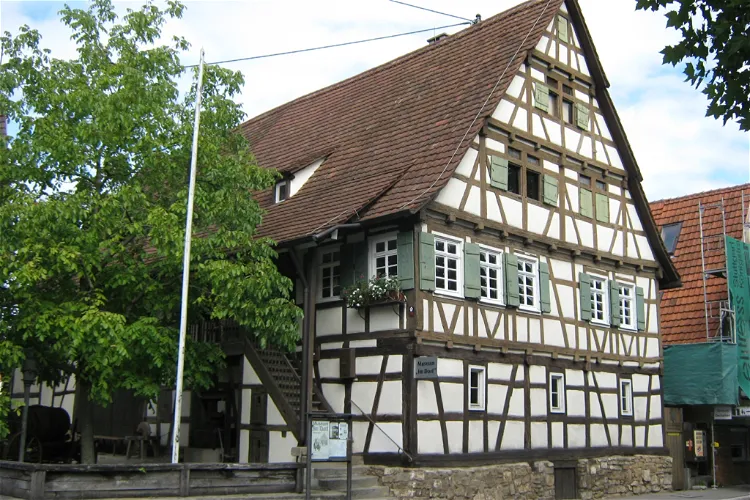
Reutlingen city museum
ReutlingenThe Reutlingen City Museum is located in the Königsbronner Hof, a restored half-timbered house in the old town of Reutlingen. This building, which is under monument protection, is one of the oldest existing structures in the city. It was built in 1278 as a stone house and was expanded with a half-timbered extension in 1537. The building's rich history and architectural significance add to the overall experience of visiting the museum.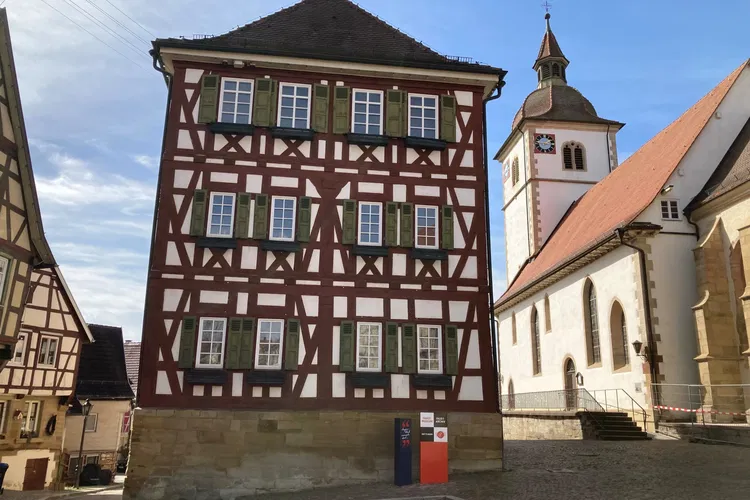
Faust-Museum Knittlingen
KnittlingenThe Faust Museum in Knittlingen, located in the Baden-Württemberg region of Germany, is situated in the Old Town Hall. This building is a half-timbered house that dates back to the 18th century. It provides a historical setting for the museum, adding to the overall experience of the visitors.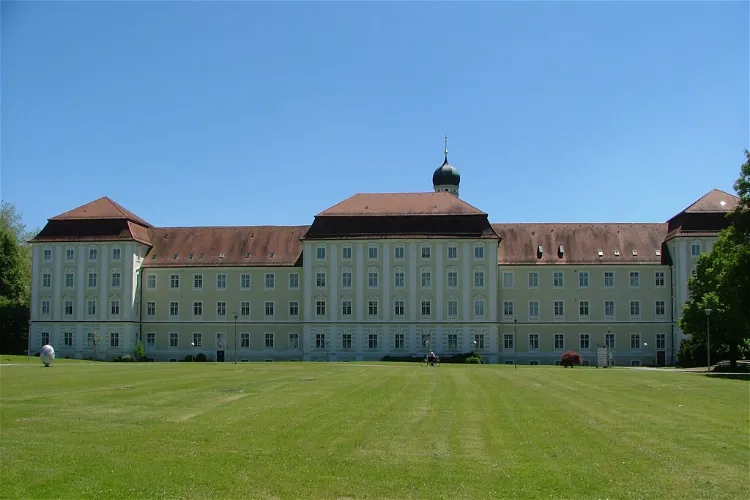
Schussenried Abbey
Bad SchussenriedThe current name, Neues Kloster, or 'new monastery', refers to the Baroque reconstruction of the abbey in 1752. This reconstruction was based on the plans of Dominikus Zimmermann, a renowned architect of the time. However, due to financial constraints, the initial plan of four wings with a church was not fully realized.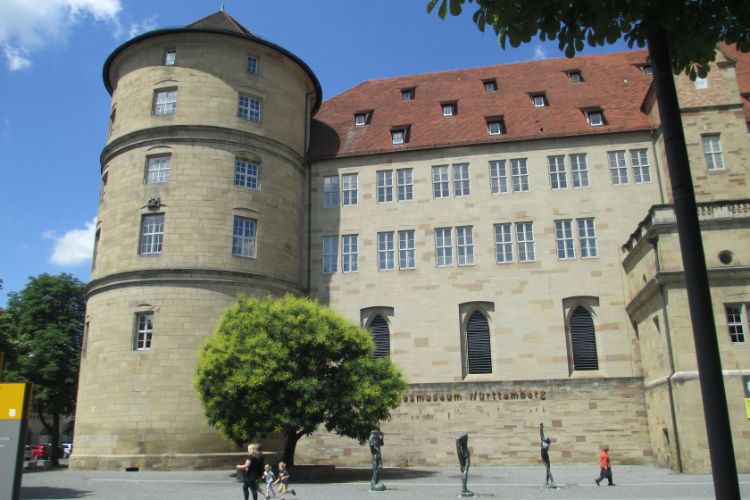
Wurttemberg State Museum in Old Castle
StuttgartThe Landesmuseum Württemberg (Württemberg State Museum) in Stuttgart was founded in 1862 by Wilhelm I. König von Württemberg. Its origin dates back to the 16th century. Back in the Kunstkammer, the dukes collected everything that was rare, precious and unusual. The museum's mission is to depict Germ- 59
Fachsenfeld Castle
AalenIn 1982, Baron Reinhard von Koenig-Fachsenfeld established a foundation to preserve Schloss Fachsenfeld and its surrounding park. Today, the castle is home to the Baron's collections and a museum, offering visitors a unique insight into the history and culture of the region. 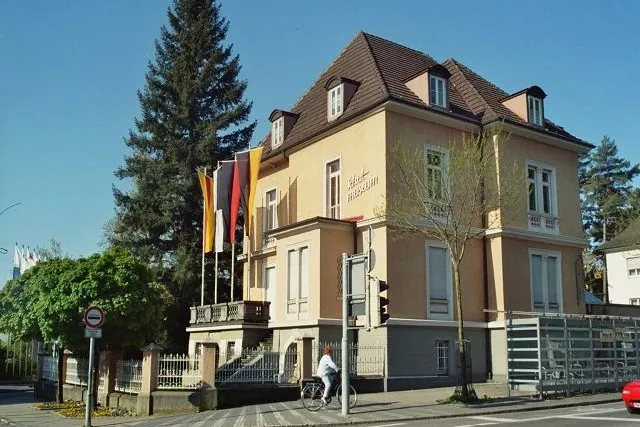
Schulmuseum
FriedrichshafenThe Schulmuseum in Friedrichshafen, located at Friedrichstraße 14, is recognized as one of the largest school museums in Germany. It offers a comprehensive display of the history of schooling in the country, spread across three floors. This museum provides a unique opportunity for visitors to delve into the evolution of education in Germany, making it a significant point of interest for those interested in history and education.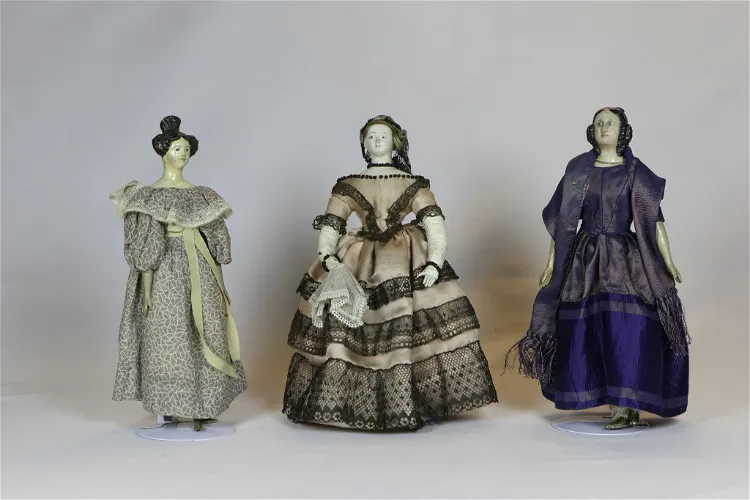
Das Kleine Museum
Hagnau am BodenseeDas Kleine Museum in Hagnau am Bodensee is a unique private museum that offers a glimpse into the past through its extensive collection of dolls, dollhouses, kitchens, toy stores, and other toys. These items, which date from the period 1830 to 1960, provide a fascinating insight into the toys and playthings of yesteryears. The museum's collection has been carefully curated and maintained, ensuring that each item is as authentic and representative of its time as possible.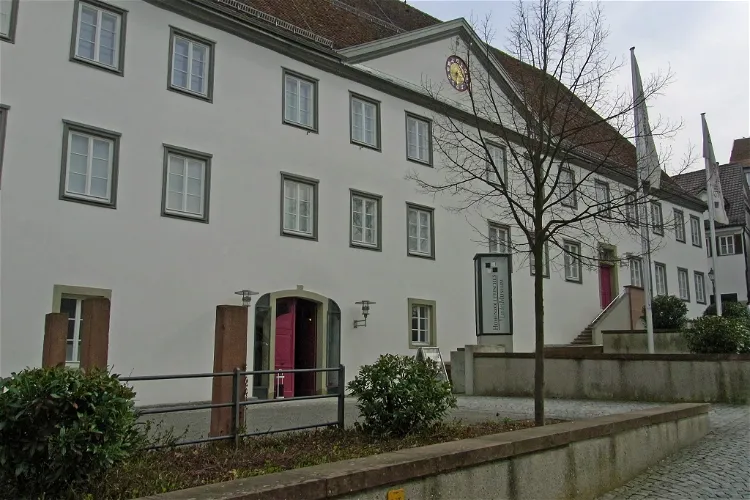
Hohenzollerisches Landesmuseum
HechingenThe Hohenzollerische Landesmuseum, located in Hechingen in the Zollernalbkreis in Baden-Württemberg, Germany, is a museum dedicated to cultural, art, and regional history. It provides a comprehensive overview of the history and art history of the County of Hohenzollern, the Principalities of Hohenzollern-Hechingen and Hohenzollern-Sigmaringen, and the Prussian Province of Hohenzollern.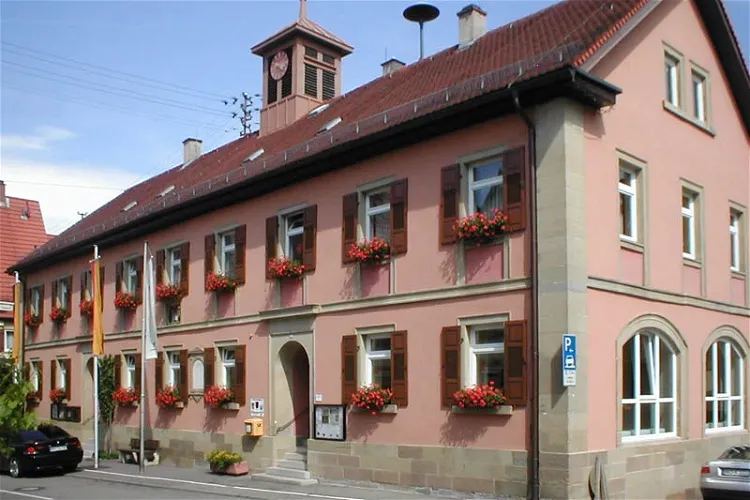
Weinbaustube Kleingartach
EppingenThe Weinbaustube Kleingartach is a small museum located in Kleingartach, a district of Eppingen in the Heilbronn district of Baden-Württemberg. Established in 2007, the museum is dedicated to the history of viticulture in the town. It provides an insight into the local wine production and the historical context of the region.- 64
Freilichtmuseum Neuhausen ob Eck
Neuhausen ob EckThe Freilichtmuseum Neuhausen ob Eck is a regional rural open-air museum located in the Tuttlingen district, northeast of Neuhausen ob Eck. It is one of seven such museums in Baden-Württemberg, offering visitors a unique insight into the region's rural history and culture. 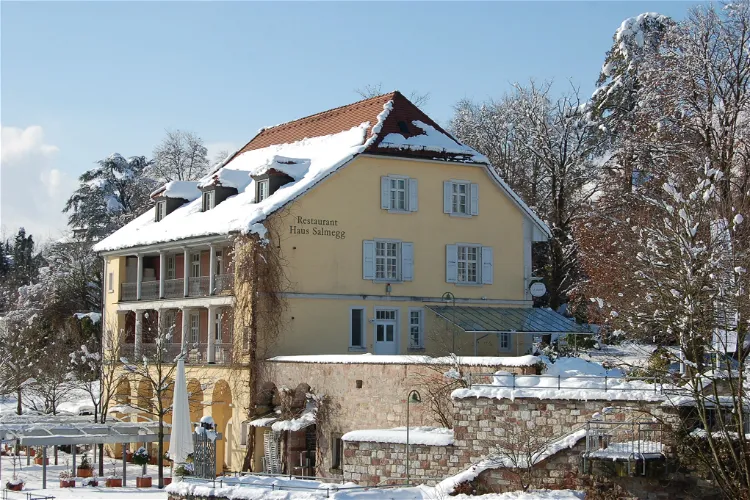
Haus Salmegg
Rheinfelden (Baden)Haus Salmegg is a historically significant building located in Rheinfelden (Baden), Germany. It is situated directly on the banks of the Rhine, near the German customs office and the Old Rhine Bridge. This former residential building is protected under German heritage laws, preserving its architectural and historical value.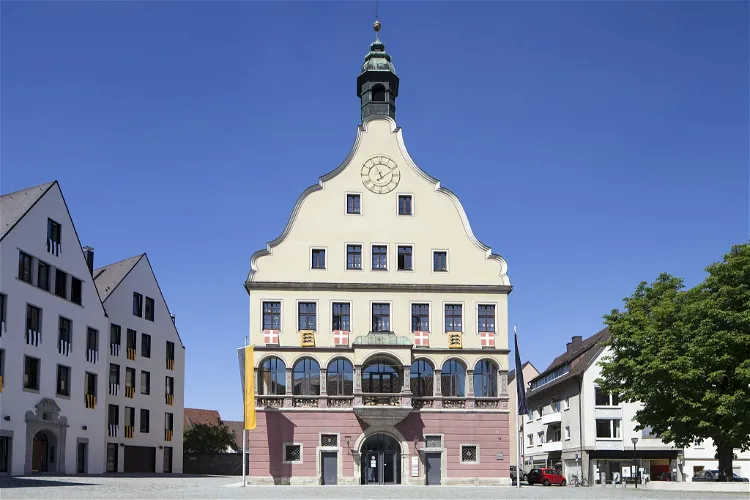
Haus der Stadtgeschichte
UlmIn addition to its role as an archive, the Haus der Stadtgeschichte – Stadtarchiv Ulm is also a cultural institution. Its mission is to raise awareness of the city's history and foster a culture of remembrance. It serves as a central point of contact for research into the city's history and is often referred to as the 'memory of the city'.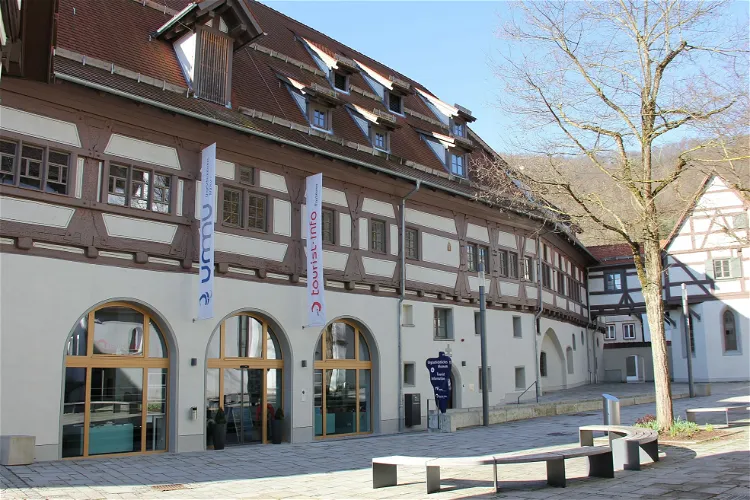
Urgeschichtliches Museum
BlaubeurenThe Urgeschichtliche Museum (URMU) in Blaubeuren, Germany, is a specialized museum focusing on artifacts, musical instruments, and everyday objects from Paleolithic hunter-gatherers. This museum provides a unique opportunity for visitors to delve into the lives of early humans, exploring their tools, art, and daily objects. The museum's collection offers a comprehensive view of the Paleolithic era, making it a fascinating destination for history enthusiasts and curious tourists alike.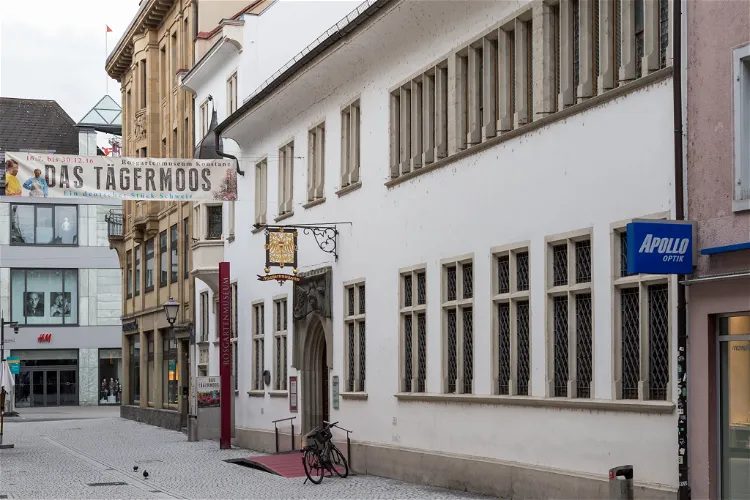
Rosgartenmuseum
ConstanceThe Rosgartenmuseum, located in Constance, Baden-Württemberg, is a museum dedicated to the art, culture, and history of the city and the Lake Constance region. Established in 1870 by Ludwig Leiner, a pharmacist and city council member from Constance, the museum is one of the oldest of its kind in the region. It offers a rich collection of historical artifacts and artworks that tell the story of the city and the region.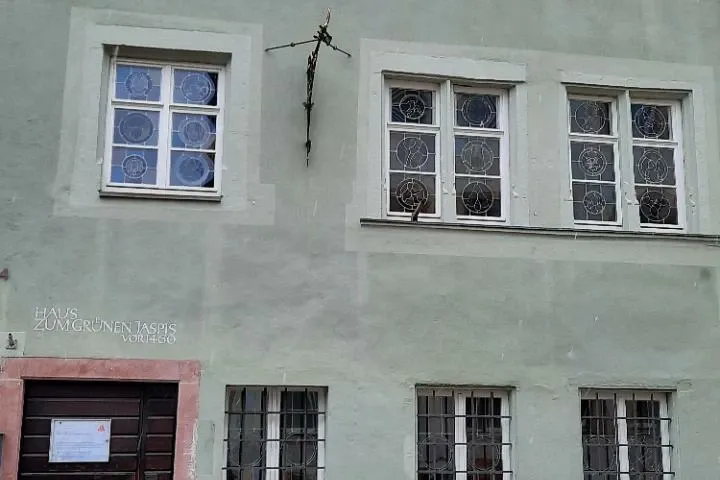
Fasnetmuseum
Freiburg im BreisgauThe Breisgauer Narrenzunft Freiburg (BNZ) is a significant organization in Freiburg im Breisgau, serving as the umbrella organization for 34 carnival guilds and the Men's Carnival Council of the Swabian-Alemannic carnival. This organization plays a crucial role in maintaining and promoting the local carnival traditions.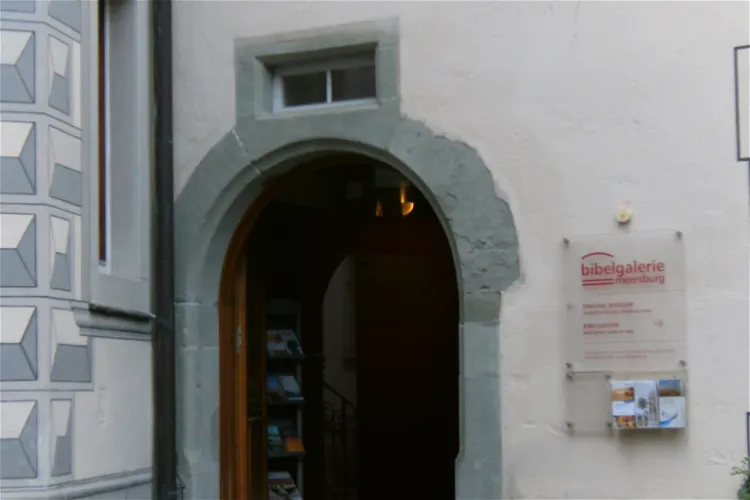
Bibelgalerie Stadtbücherei
MeersburgThe Bibelgalerie Meersburg is a unique Bible museum situated in the former Dominican convent in the upper town of Meersburg on Lake Constance. This historical location adds to the charm and appeal of the museum. However, it's important to note that the museum is closed during the winter months, so planning a visit outside of this period would be advisable.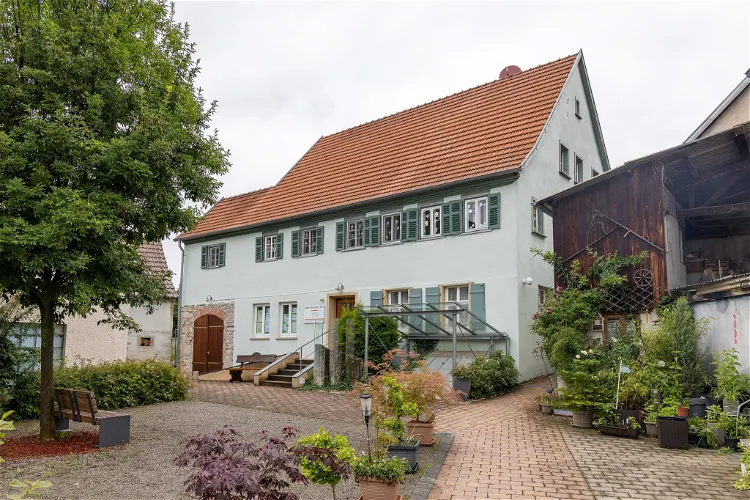
Rabbinatsmuseum Braunsbach
ArnsdorfThe Rabbinatsmuseum in Braunsbach, located in the district of Schwäbisch Hall in Baden-Württemberg, was inaugurated on April 13, 2008. The museum is housed in the old Rabbinat, adding a historical touch to the establishment.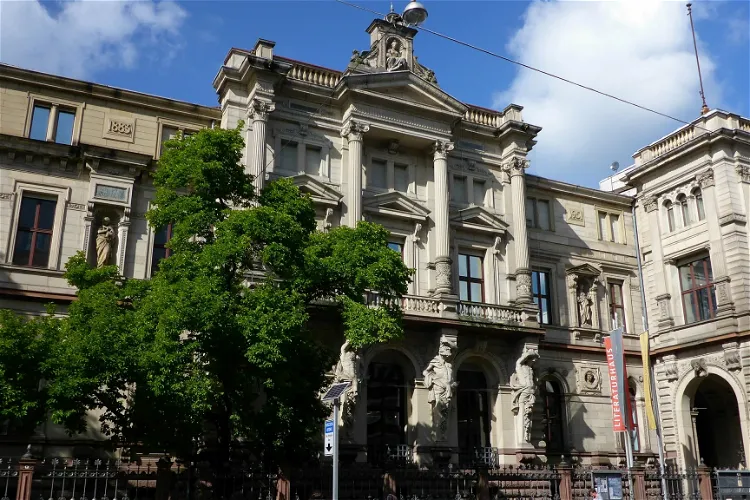
Museum of Literature on the Upper Rhine
KarlsruheThe Museum of Literature on the Upper Rhine is located in the Prinz-Max-Palais, the city's cultural center. This historic building also serves as the headquarters of the Literary Society Karlsruhe. In addition to the museum, the Prinz-Max-Palais hosts the city museum and the youth library of the city library, making it a hub of cultural and educational activities.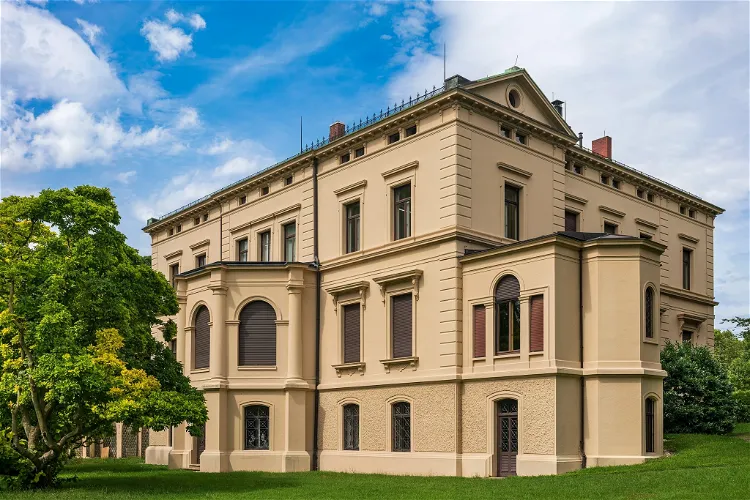
Villa Merkel
Esslingen am NeckarThe Villa Merkel, located in Esslingen am Neckar, was originally constructed in the years 1872 and 1873. It was built as an entrepreneur's villa and has been functioning as the city of Esslingen's gallery since 1973. This historical building offers a unique blend of history and art, making it a fascinating destination for tourists interested in both.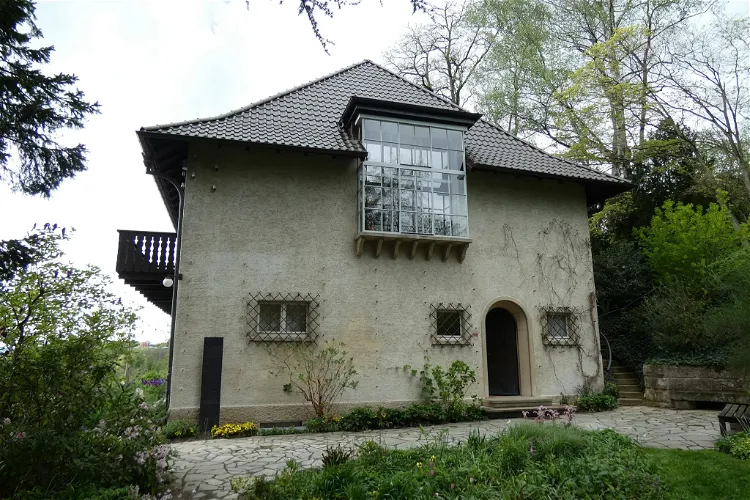
Museum Haus Dix
HemmenhofenThe Museum Haus Dix, located in Hemmenhofen, a district of Gaienhofen, is the former home and studio of the renowned German painter Otto Dix. This establishment is a part of the Kunstmuseum Stuttgart. The house was designed by Dresden architect Arnulf Schelcher and is characterized by its studio windows on the east side, a surrounding balcony, and numerous windows with a view of the lake. The house offers a unique insight into the life and work of Otto Dix.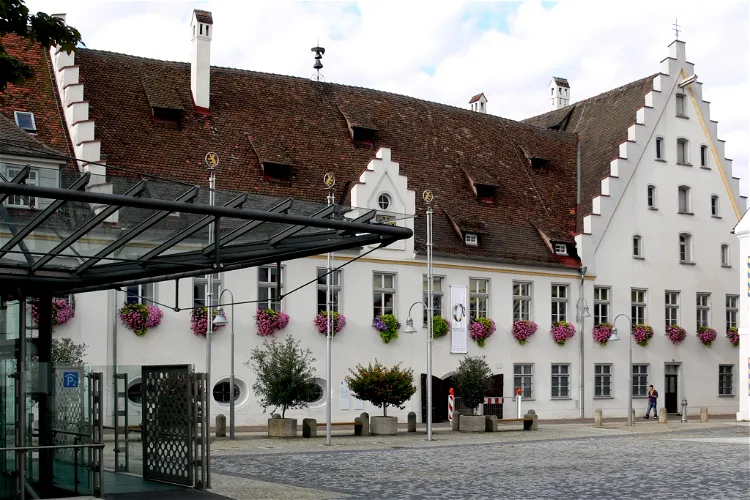
Museum Biberach
Biberach an der RißThe Museum Biberach, located in Biberach an der Riss in Upper Swabia, is a multi-faceted institution with various sections. It offers a comprehensive exploration of different fields, making it a diverse and enriching destination for tourists.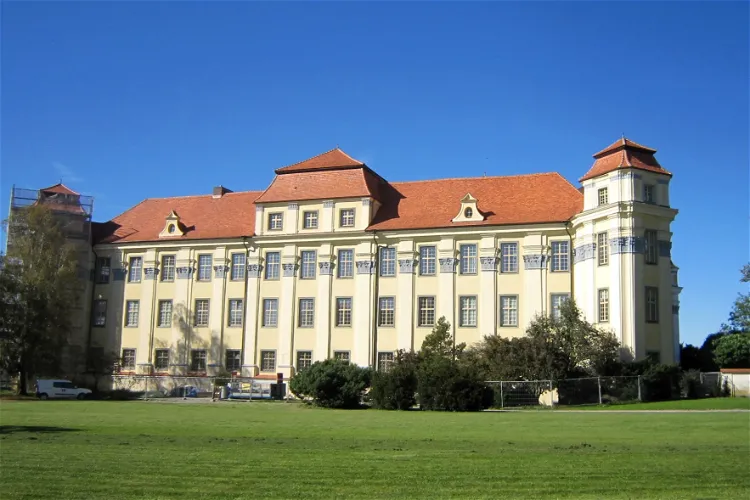
Tettnang New Palace
TettnangTettnang Castle, also known as the Tettnang New Palace, is a significant historical site in the German town of Tettnang. It is one of three castles in the town, making it a key part of the local heritage and a point of interest for visitors.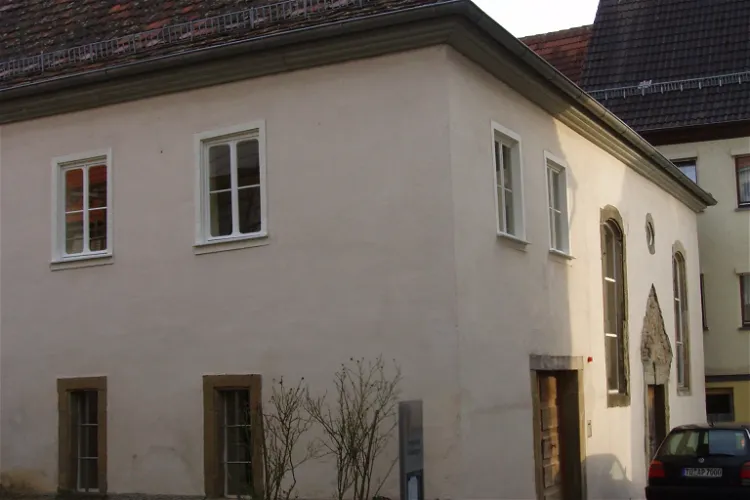
Gedenkstätte Synagoge Baisingen
Rottenburg am NeckarThe Baisingen Synagogue, nestled in a district of Rottenburg am Neckar, is a significant historical site. It is recognized as one of the best-preserved rural synagogues in Germany. Today, it serves as a museum, providing visitors with a glimpse into the rich Jewish history of the region. The museum is diligently maintained by a support association, ensuring its preservation for future generations.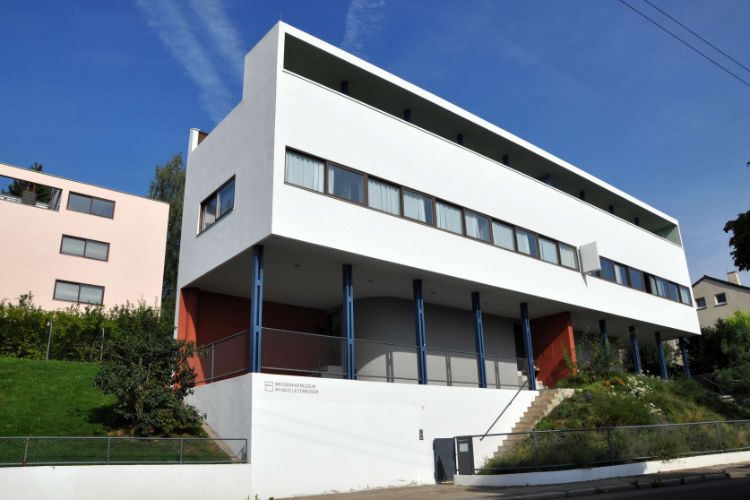
Weissenhofmuseum im Haus Le Corbusier
StuttgartThe Weissenhof Estate is a milestone in modern architecture and was built in 1927 by 17 international architects. It has been a listed building since 1958. Architects Le Corbusier and Pierre Jeanneret also built a semi-detached house and a detached house for the estate, which were designated UNESCO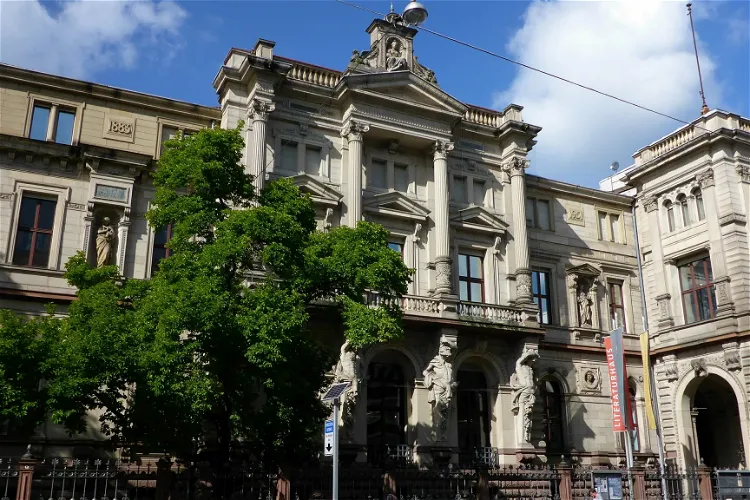
Stadtmuseum
KarlsruheThe Stadtmuseum Karlsruhe is a museum that presents the history of the city of Karlsruhe through a permanent exhibition. This exhibition provides a comprehensive overview of the city's past, making it a valuable resource for anyone interested in learning more about Karlsruhe's history.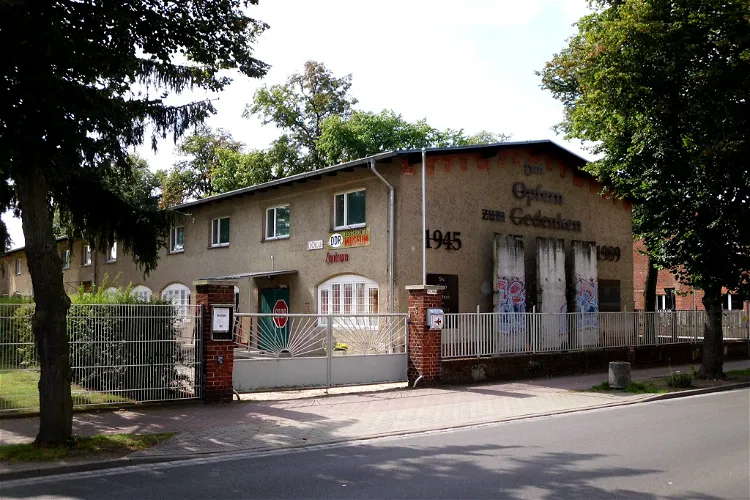
DDR Museum Pforzheim
PforzheimThe DDR Museum Pforzheim, established in 1998, is a testament to the life and times of East Germany before 1990. The museum was founded by Klaus Knabe, who, along with his wife, moved to the West shortly before the construction of the Berlin Wall in 1961. Knabe collected everyday objects and other DDR items, providing a comprehensive picture of the East German state. These items were initially stored in an attic until the city of Pforzheim provided him with a former kindergarten of the French garrison.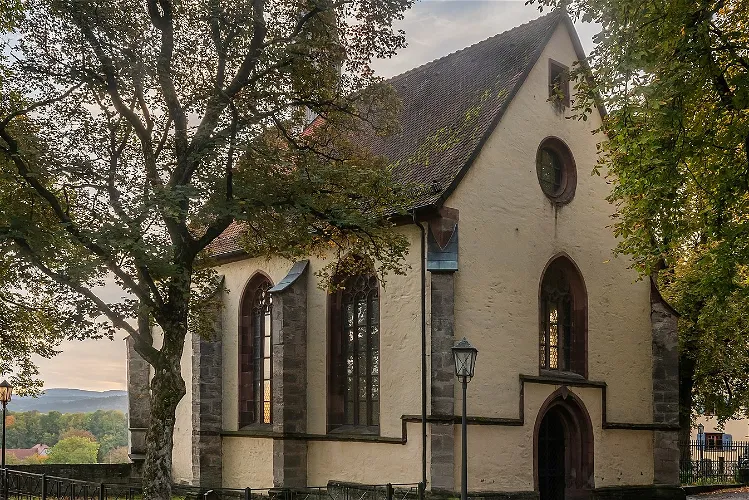
Kunstsammlung Lorenzkapelle Rottweil
RottweilThe Lorenzkapelle, located in Rottweil, Baden-Württemberg, is recognized as a protected cultural monument. This status signifies its historical and cultural significance, making it a point of interest for those who appreciate history and architecture.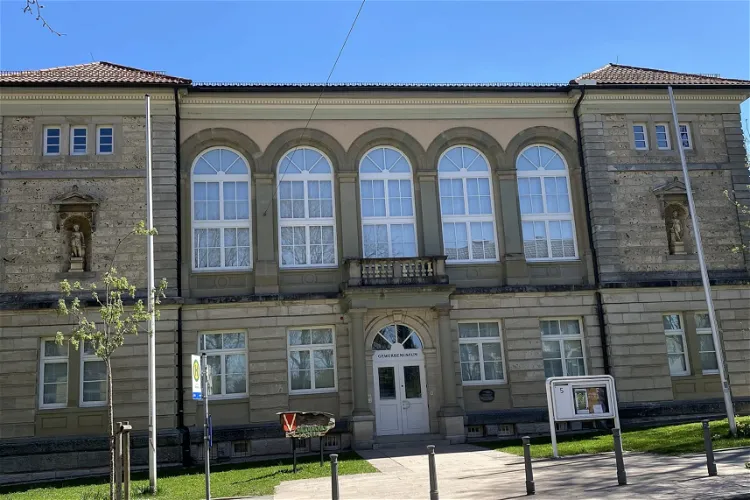
Gewerbemuseum
SpaichingenThe Gewerbemuseum Spaichingen is a city museum situated in the town of Spaichingen, within the Tuttlingen district of Baden-Württemberg. Established in 1991, the museum is housed in a building constructed in 1876 in the Neorenaissance style. The museum offers a glimpse into the region's history and its transition from a rural area to an industrial hub.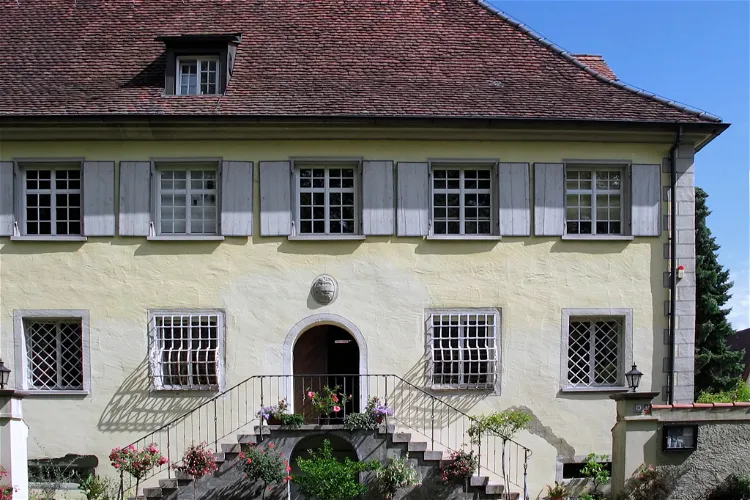
Jünger-Haus Wilflingen
LangenenslingenThe Jünger-Haus Wilflingen was the home of the writer Ernst Jünger from 1951 until his death in 1998. In 1999, the building was converted into a museum and literary memorial to Ernst Jünger and his brother Friedrich Georg Jünger. This makes the house not only a historical site but also a place of literary significance.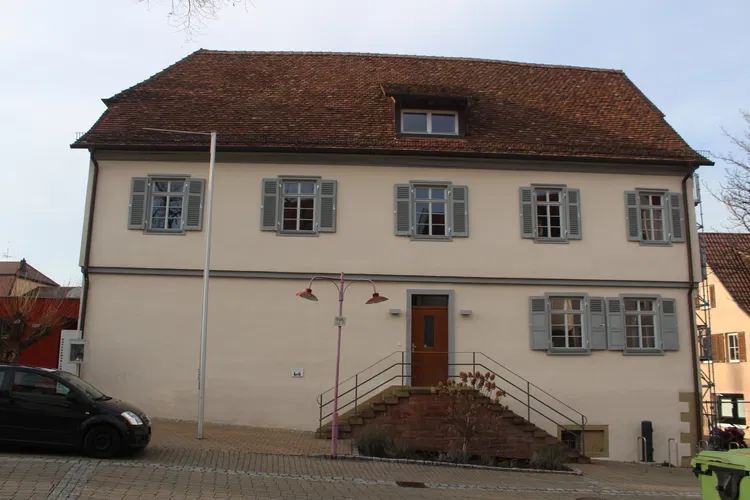
Kaffeemühlenmuseum
WiernsheimThe Kaffeemühlenmuseum Wiernsheim, established in 2011, is a museum dedicated to coffee grinders. It is located in the former parsonage of Wiernsheim, a building with its own historical significance. This unique museum offers a deep dive into the world of coffee grinding, showcasing a variety of grinders from different periods.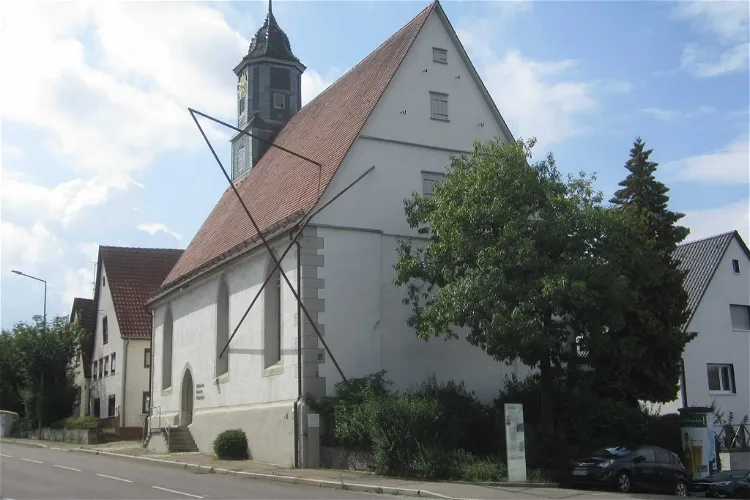
Jewish Museum
GöppingenThe Jewish Museum Göppingen is located in the city of Göppingen, in the Baden-Württemberg region of Germany. It was opened in 1992, housed within the village church of the Jebenhausen district, a structure that dates back to 1507. This unique setting provides a historical backdrop to the museum's exhibits.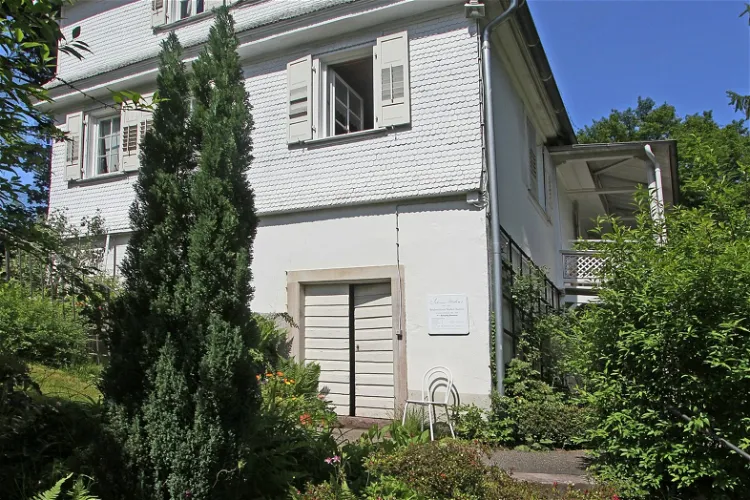
Brahms House
Baden-BadenBrahms House, also known as Lichtental No. 8, is a biographical museum located in Baden-Baden, Germany. It is dedicated to the life and works of the renowned composer Johannes Brahms. The museum provides an in-depth look into Brahms' life, his time in Baden-Baden, and his significant contributions to music.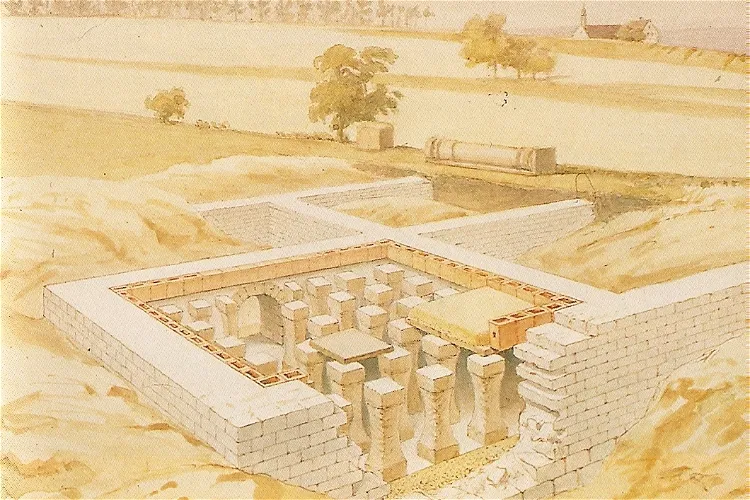
Römisches Stadtmuseum Sumelocenna
Rottenburg am NeckarThe Sumelocenna Museum, also known as the Roman City Museum, is an archaeological museum located in Rottenburg am Neckar, in the Tübingen district. This museum provides a unique opportunity to delve into the history of the region, offering a glimpse into the everyday life of the provincial Roman population in ancient Sumelocenna, now known as Rottenburg.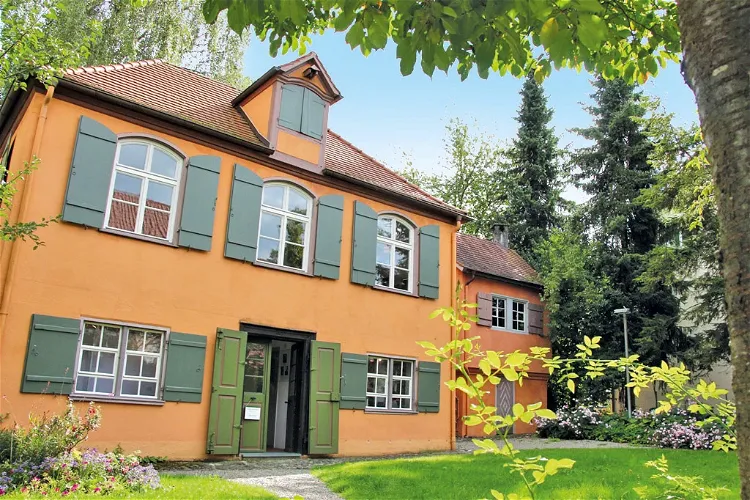
Wieland-Museum
Biberach an der RißThe Wieland Museum in Biberach an der Riß is a cultural institution dedicated to the life and work of the renowned poet and writer Christoph Martin Wieland. This museum serves as a tribute to Wieland, who spent his formative years in this town. It offers a unique opportunity for visitors to delve into the world of this influential figure and gain insights into his life and literary contributions.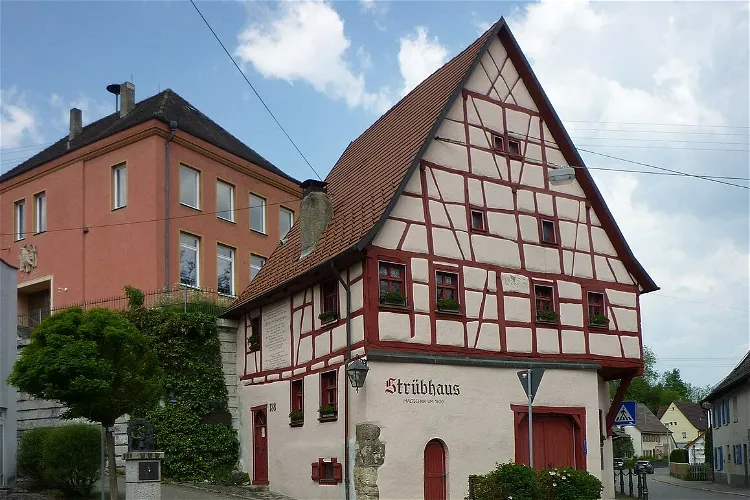
Strübhaus - Haus der Malkust
VeringenstadtThe Strübhaus, located in Veringenstadt, is a significant historical site as it was likely built in the 14th century. It served as the original residence and workshop of the Strüb artist family. This makes it a unique destination for tourists interested in history and art.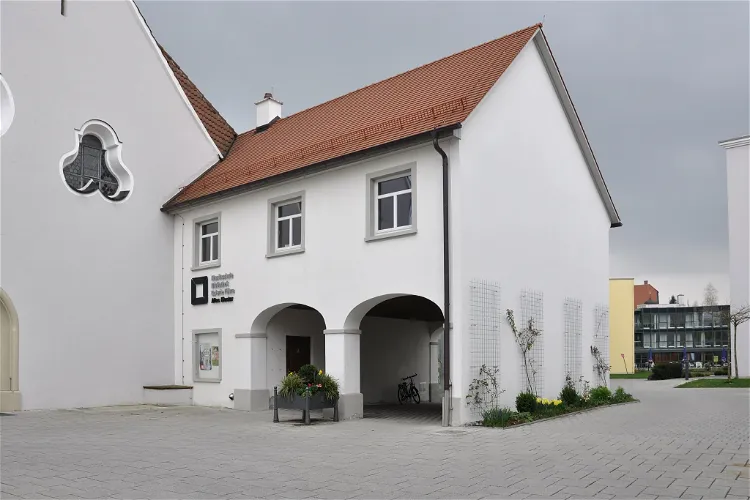
Galerie Fähre
Bad SaulgauGalerie Fähre is a city art gallery located in Bad Saulgau, Upper Swabia. It was founded in 1947 by Governor Coup de Fréjac, Karl-Anton Maier, and Josef Karlmann Brechenmacher. The gallery was established as a 'Centre d`Information' with the aim of democratizing Germans through art and culture after the NS dictatorship.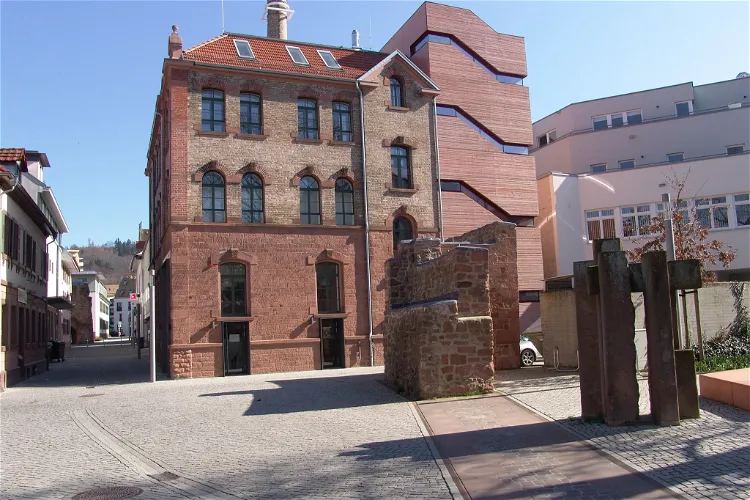
Stadtmuseum Lahr
Lahr/SchwarzwaldThe Stadtmuseum in Lahr/Schwarzwald is housed in a former clay oven factory of the Oven and Clayware Factory C.H. Liermann. This unique setting gives the museum a distinctive character and a strong connection to the city's industrial past. The museum was officially inaugurated in 2018, making it a relatively new addition to the city's cultural scene.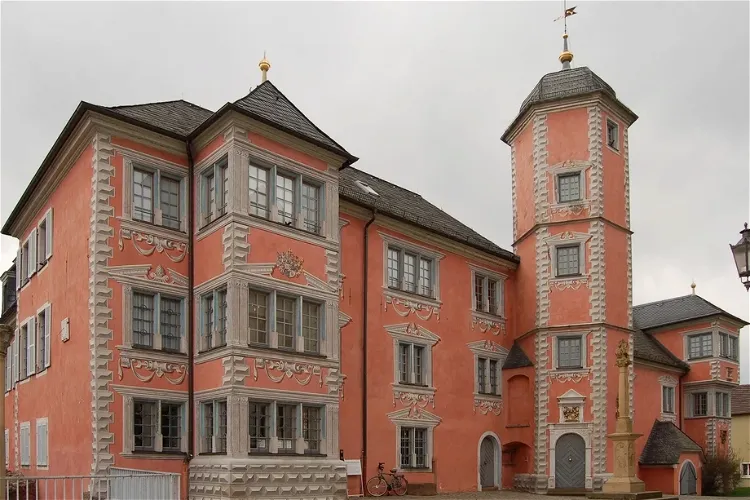
Lobdengau-Museum
LadenburgThe Lobdengau-Museum is situated in the town of Ladenburg, within the Rhein-Neckar-Kreis district. The museum is housed in the former Bishop's Palace, which was once the residence of the Prince-Bishops of Worms. This historical setting adds a unique charm to the museum, making it an interesting destination for tourists interested in history and architecture.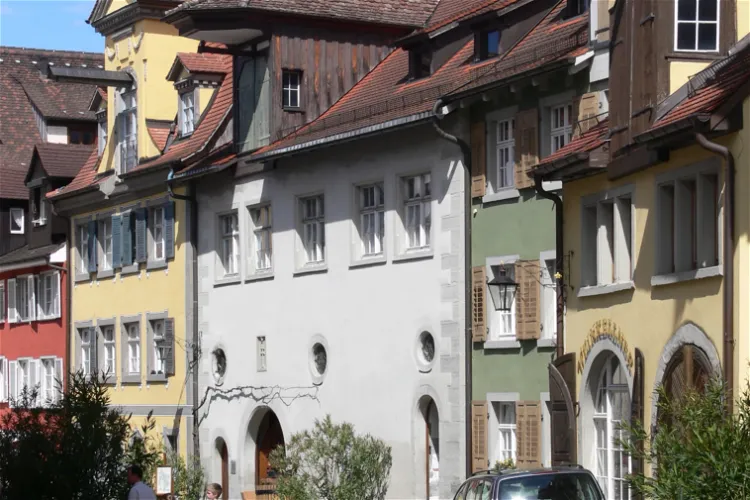
vineum bodensee
MeersburgThe vineum bodensee is a museum located in the city of Meersburg. It is dedicated to the cultural history of wine in Meersburg and the Lake Constance region. The museum provides a comprehensive insight into the wine culture, from the process of wine-making to its significance in the region's history and lifestyle.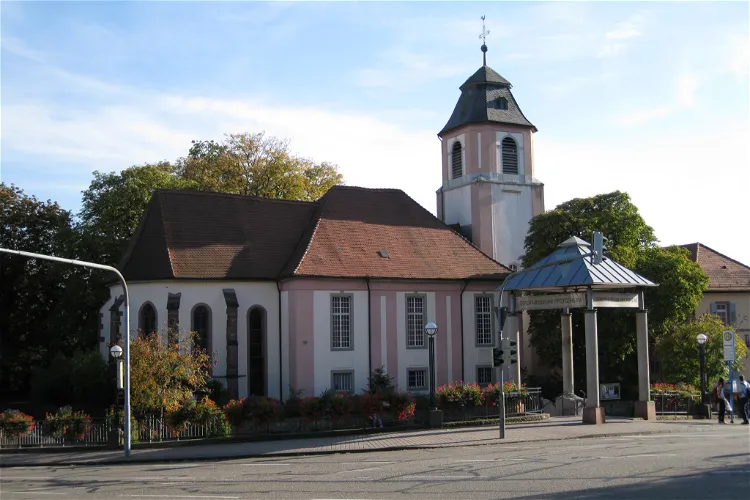
Stadtmuseum Pforzheim
PforzheimThe Stadtmuseum Pforzheim, located in Pforzheim, Baden-Württemberg, has been housed in the deconsecrated St. Martin parish church and the Old Schoolhouse since 1974. This unique location adds a historical charm to the museum, making it an interesting place to visit for those interested in architecture and history.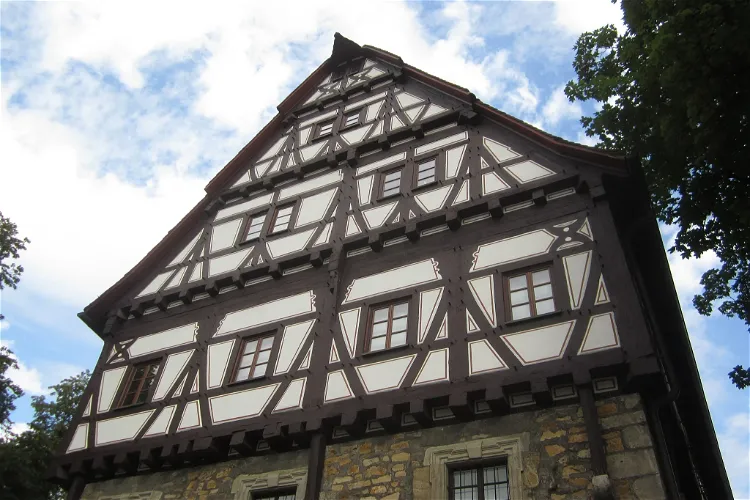
Museum im Storchen
GöppingenThe Storchen, also known as Liebensteinsches Schlösschen, is a significant historical site in Göppingen. Built in the 16th century, it is the oldest residential building in the city. Today, it serves as the home of the Städtische Museum Göppingen, offering visitors a glimpse into the city's rich history and cultural heritage.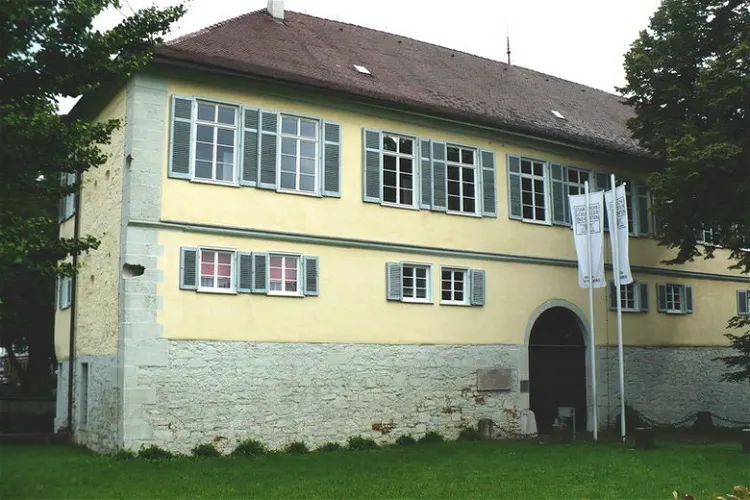
Schloss Kirchheim (Teck)
Kirchheim unter TeckSchloss Kirchheim, a well-preserved Renaissance fortress, is situated on the edge of the old town of Kirchheim unter Teck. This historical site offers a glimpse into the past, showcasing the architectural style of the Renaissance period. The castle's location, on the edge of the old town, provides a picturesque setting that enhances the overall experience for visitors.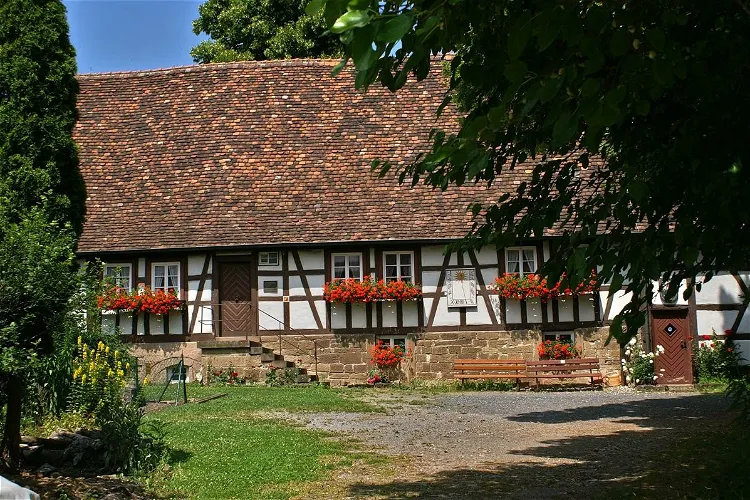
Henri-Arnaud-Haus - Waldensermuseum
SchönenbergThe Henri-Arnaud-Haus, located in Schönenberg, a district of the Baden-Württemberg municipality of Ötisheim in the Enzkreis, is a significant historical site. It was once the residence of the Waldensian pastor Henri Arnaud and has now been transformed into a Waldensian museum. This museum offers a unique insight into the life and times of Henri Arnaud and the Waldensian community he served.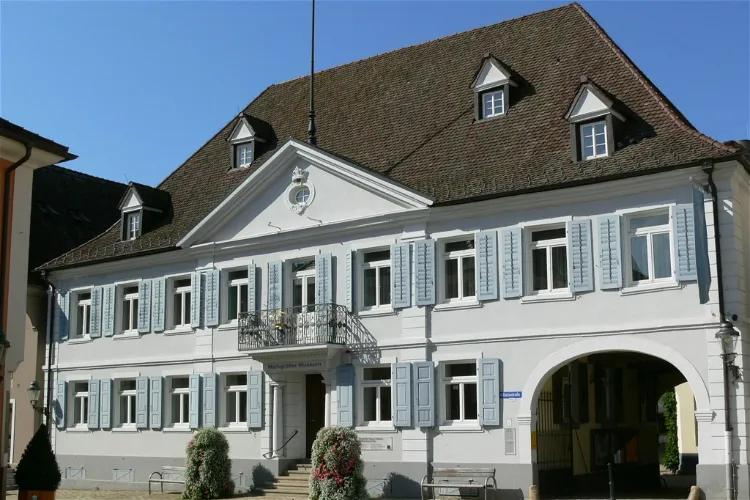
Markgräfler Museum Müllheim
Müllheim im MarkgräflerlandThe Markgräfler Museum is a regional museum located in Müllheim in the Markgräflerland, a city within the district of Breisgau-Hochschwarzwald in Baden-Württemberg, Germany. It is the largest museum between Freiburg im Breisgau and the agglomeration of Basel Lörrach in the tri-border area. The museum has two locations: the Blankenhorn Palace and the Frick Mill.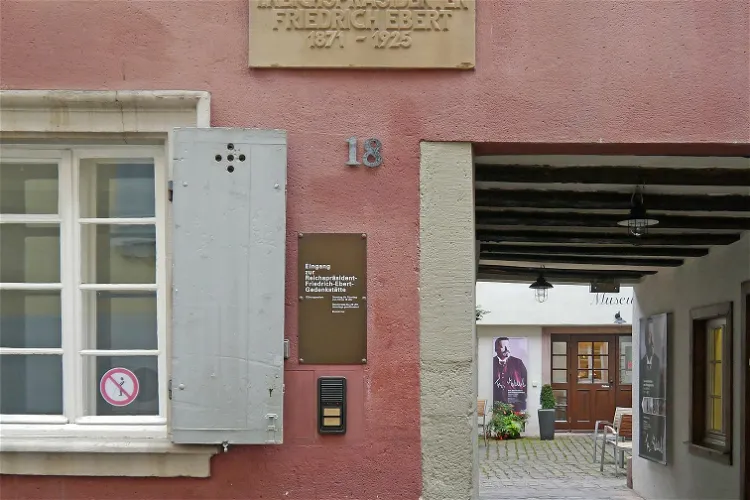
President Friedrich Ebert Memorial
HeidelbergThe memorial first opened its doors to the public on June 7, 1962, with a small exhibition dedicated to the life of Friedrich Ebert. The exhibition is located in the very house where Ebert was born, adding a personal touch to the historical narrative presented.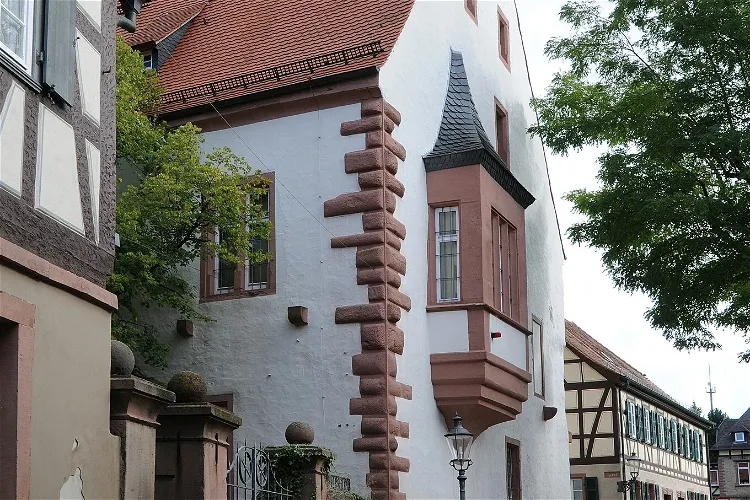
Bezirksmuseum Buchen
Buchen (Odenwald)The Bezirksmuseum Buchen was founded by Karl Trunzer, a teacher who had a passion for collecting folk art from the Odenwald region. His collection forms the basis of the museum's exhibits, providing visitors with a unique insight into the region's folk art traditions.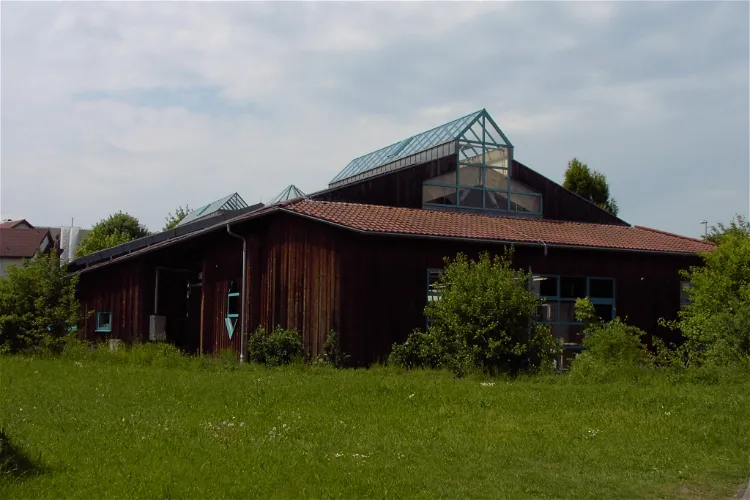
Römerhaus Walheim
WalheimThe museum is home to the fully preserved foundations of a Roman strip house. This building is considered the best-preserved of its type north of the Alps. Visitors can explore the foundations and learn about the architectural techniques used in Roman times.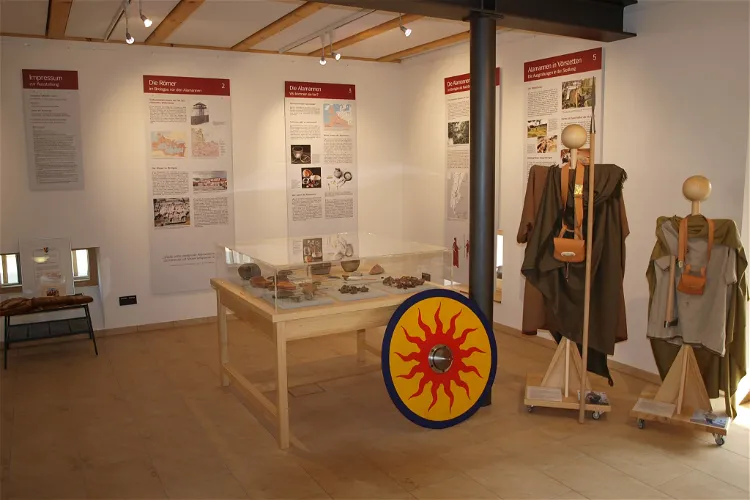
Alamannen-Museum Vörstetten
VörstettenThe Alamannen-Museum Vörstetten is an archaeological museum situated in the municipality of Vörstetten, within the Emmendingen district of Baden-Württemberg. This museum provides a unique opportunity for visitors to delve into the rich archaeological history of the region.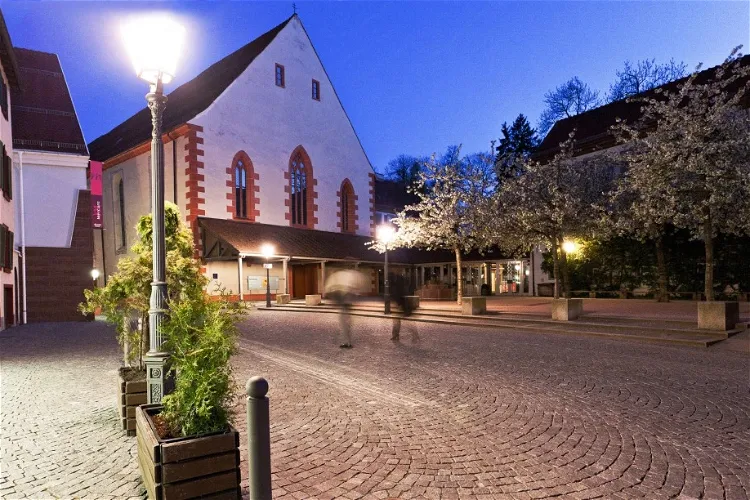
Franziskanermuseum
Villingen-SchwenningenThe Franziskanermuseum, situated in the former Franciscan monastery in Villingen-Schwenningen, is a cultural-historical museum. It offers a comprehensive insight into the city's history from its beginnings to the present day. Additionally, it provides a deep dive into the folklore of the Black Forest and the Celtic princely tomb Magdalenenberg. This museum is a great place for tourists interested in history, culture, and folklore.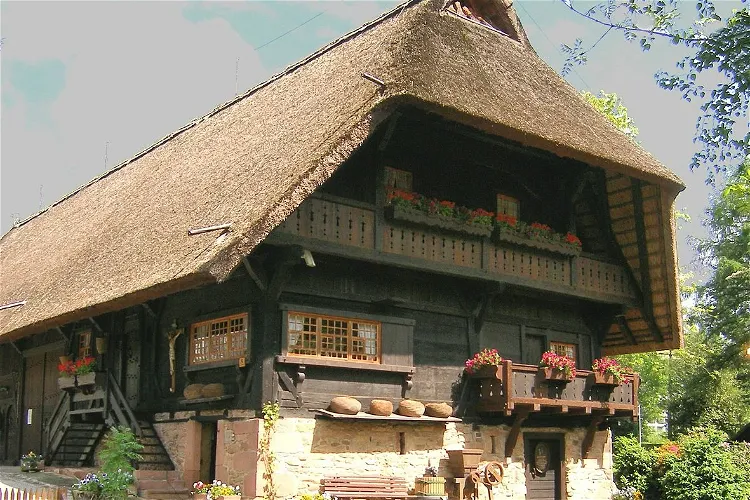
Heimatmuseum Fürstenberger Hof
Zell am HarmersbachThe Heimatmuseum Fürstenberger Hof is located in Unterharmersbach, a district of Zell am Harmersbach in the Ortenaukreis. This museum is housed in a thatched Black Forest house, providing a unique and authentic experience of the region's traditional architecture.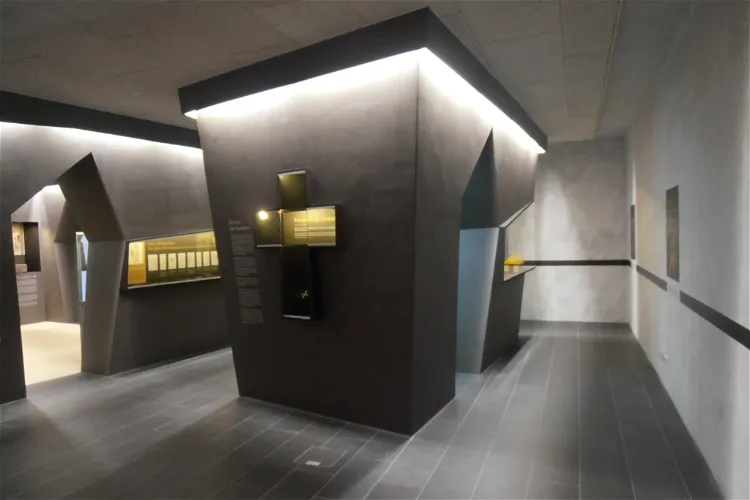
Roman Museum Remchingen
RemchingenThe Roman Museum Remchingen, situated in Remchingen, Germany, is a significant historical site that was established by Jeff Klotz. This museum offers a unique opportunity to explore the remnants of a Roman-era house, including its walls, which were discovered during a construction project in 2007. The museum was officially opened in 2009 and has since become a notable destination for those interested in Roman history.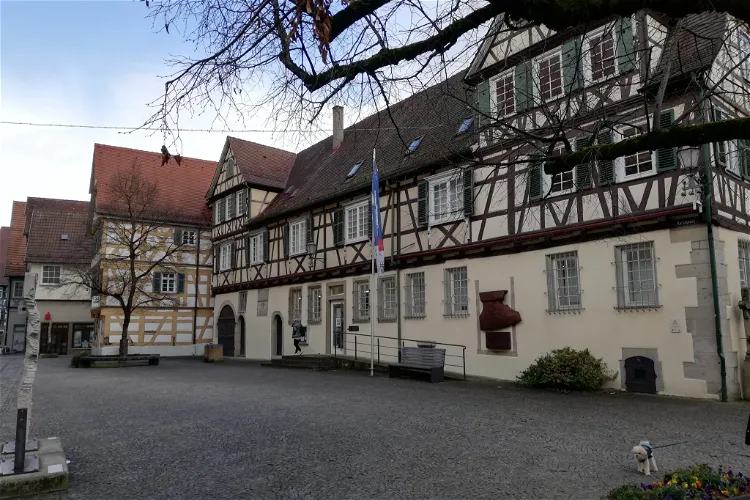
Stadtmuseum
SchorndorfThe Stadtmuseum Schorndorf is a city history museum situated in the large district town of Schorndorf, within the Rems-Murr district. It provides a comprehensive insight into the history and development of the city, making it a valuable destination for those interested in local history and culture.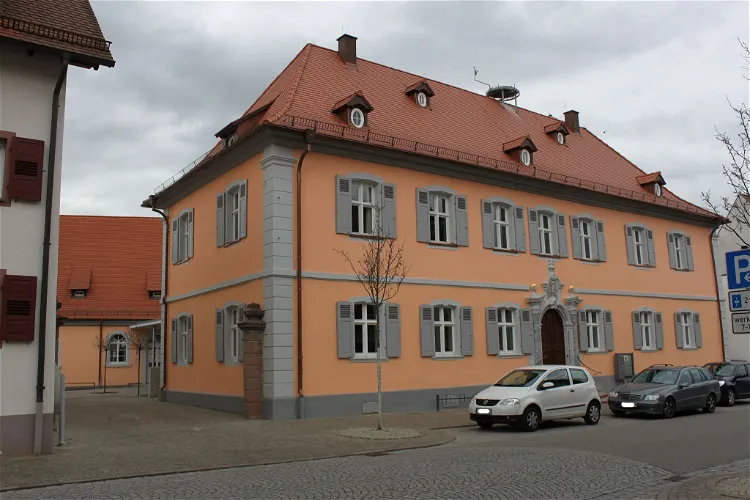
Museum Riegel
RiegelMuseum Riegel is situated in the municipality of Riegel am Kaiserstuhl. This location is easily accessible and offers a unique cultural experience for visitors interested in history and technology.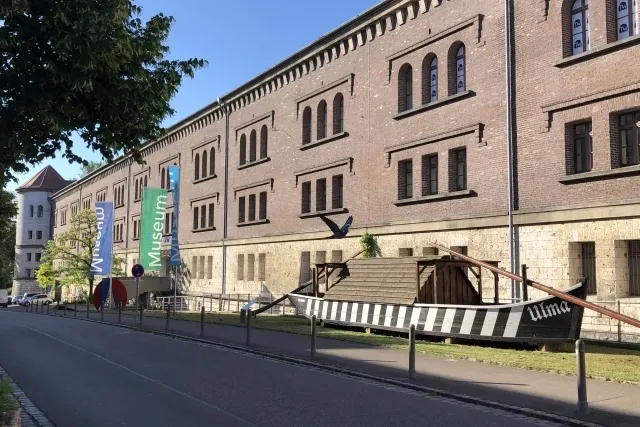
Danube Swabian Central Museum
UlmThe Danube Swabian Central Museum (DZM) in Ulm is a unique institution that provides a comprehensive and scientific representation of the history of the Danube Swabians from the late 17th century to the present. The museum's exhibitions, both permanent and special, delve into the culture and everyday life of this German minority in the multiethnic settlement areas along the middle course of the Danube in the Pannonian Lowlands.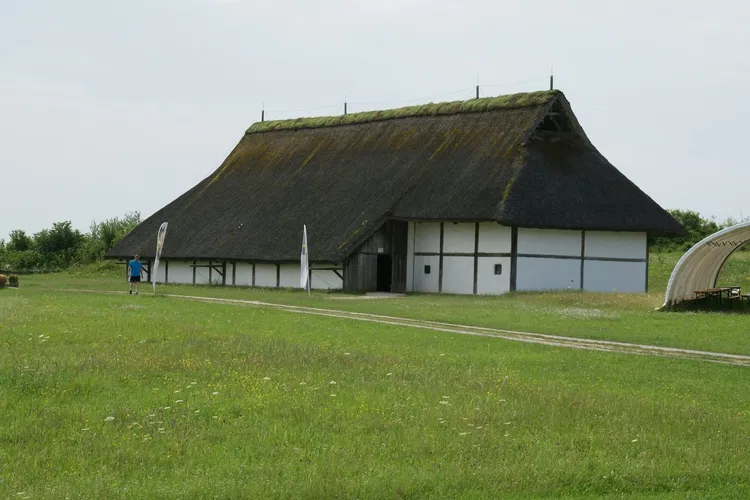
Heuneburg
HundersingenHeuneburg, often referred to as "the first city north of the Alps", was a Celtic city. This historical significance of the city provides a unique insight into the life and culture of the Celts, making it an interesting destination for tourists interested in history and archaeology.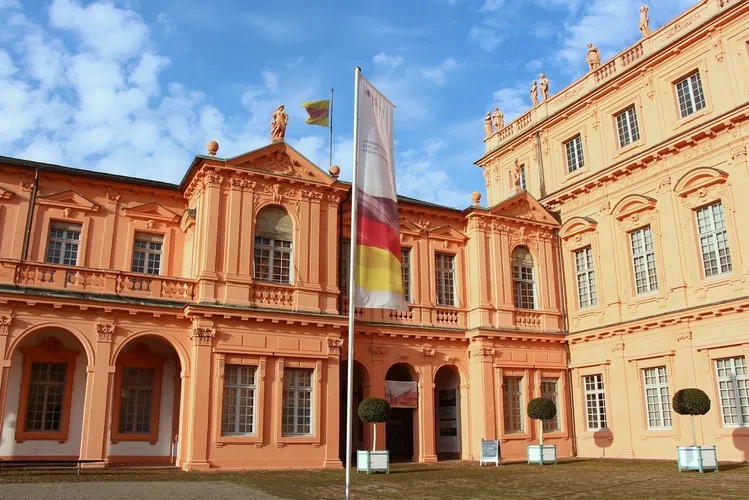
Erinnerungsstätte für die Freiheitsbewegungen in der deutschen Geschichte
RastattThe Memorial for the Freedom Movements in German History, often referred to as the Freedom Museum, is situated in the city of Rastatt. This museum is dedicated to exploring and showcasing the democratic traditions that have shaped Germany's history. It provides a unique opportunity for visitors to delve into the country's past and gain a deeper understanding of its democratic evolution.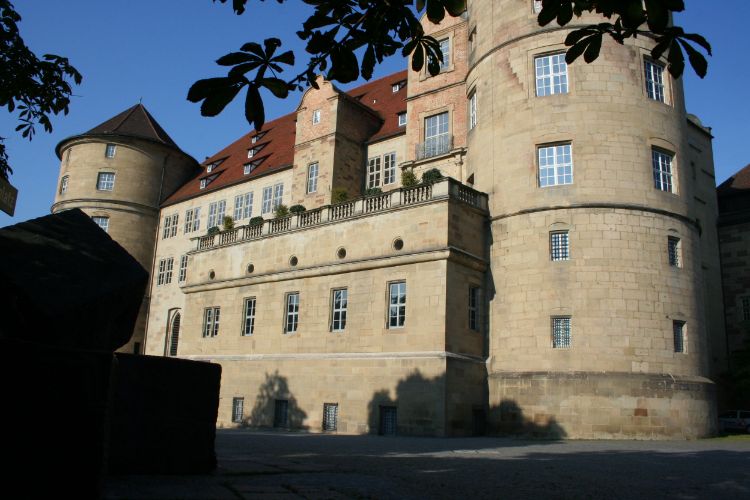
Stauffenberg-Erinnerungsstaette
StuttgartThe Stauffenberg memorial site in Stuttgart's Old Palace is dedicated to the Hitler assassin Claus von Stauffenberg and his brother and co-conspirator Berthold. The exhibition shows the lives of both brothers from the sheltered youth in Stuttgart, their careers in the civil service, and the resistan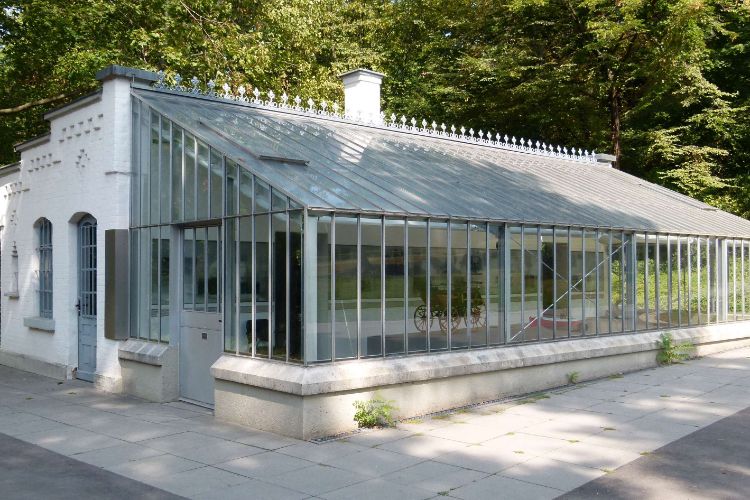
Gottlieb Daimler Gedächtnisstätte
StuttgartAs if Gottlieb Daimler and Wilhelm Maybach had just completed it, this former garden house is still largely in its original state from 1882. At that time, however, the surrounding park was not a public green oasis in the city but part of Daimler's private estate. The Gottlieb Daimler Gedächtnisstätt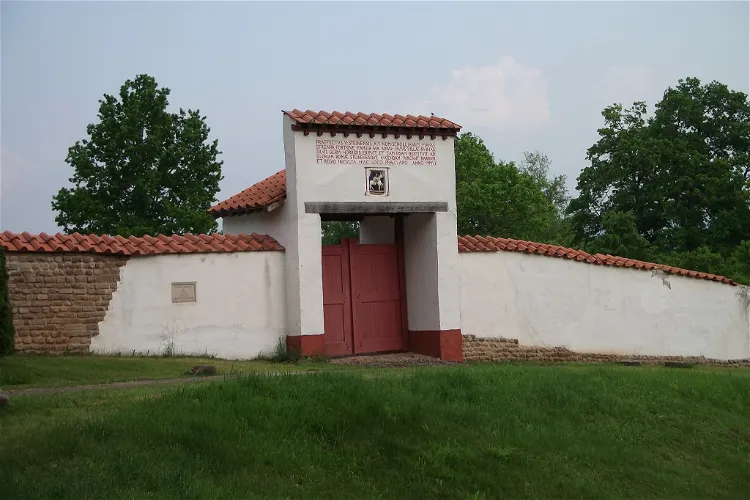
Roman Open-Air Museum
HechingenThe site of the Roman Open-Air Museum Hechingen Stein was discovered in 1972. Subsequent excavations from 1978 to 1981 unveiled the remnants of a large Roman villa rustica. This villa included residential and economic buildings, all enclosed within a wall. This discovery provides a unique insight into the architectural and societal structures of the Roman era.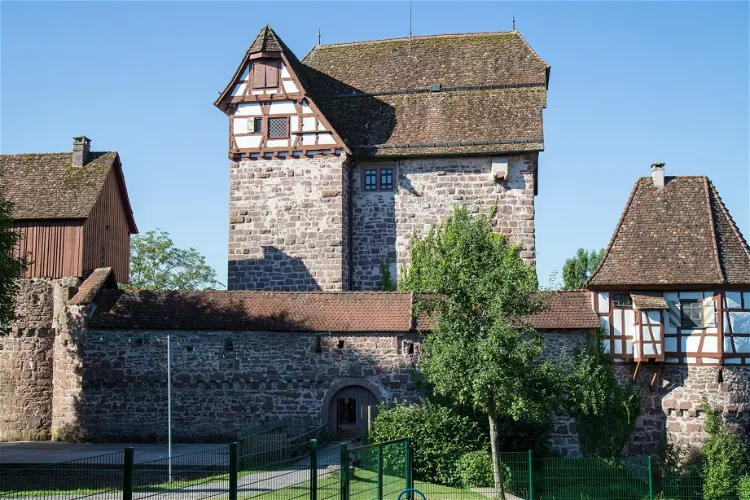
Museum im Alten Schloss
AltensteigSchloss Altensteig is a castle complex situated on the northern edge of the old town of Altensteig, in the Calw district of Baden-Württemberg. This location offers visitors a unique opportunity to explore the historical architecture of the region, while also enjoying the picturesque views of the surrounding area.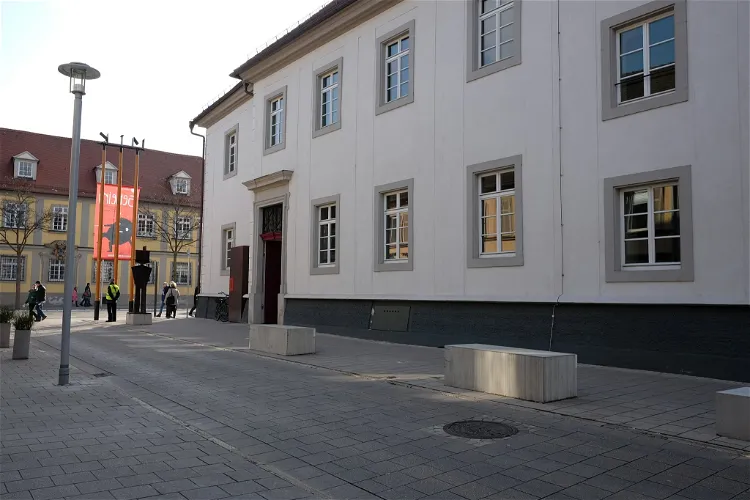
Ludwigsburg Museum
LudwigsburgThe Ludwigsburg Museum is a cultural institution that showcases the rich history of the city of Ludwigsburg and its surrounding region. Visitors can explore a variety of exhibits that highlight the city's character as a residence and center of the arts, as well as its role as a garrison and industrial location. The museum's collection, which dates back to the 19th century, provides a comprehensive overview of the city's cultural evolution.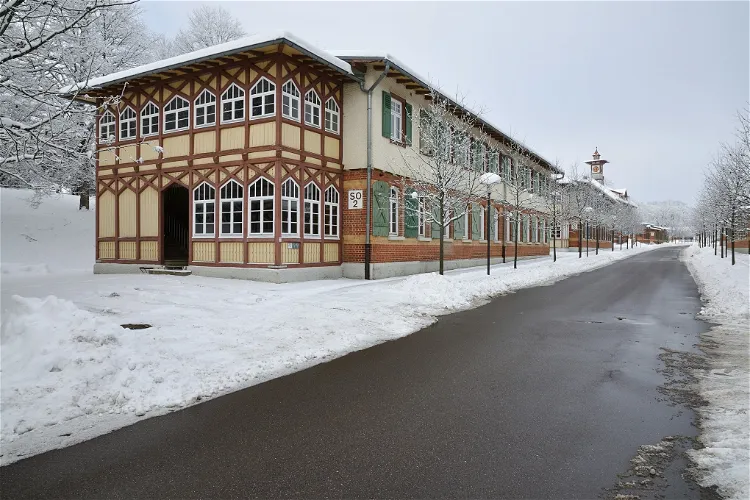
Museum Altes Lager Münsingen
MünsingenThe Altes Lager is open to the public daily from 9:00 AM to 7:00 PM. Visitors can access the site via a foot and bike path that was opened in 2019. This path connects the Altes Lager to the Swabian Alb biosphere area and the former military training area, offering a unique opportunity to explore the region's natural and historical attractions.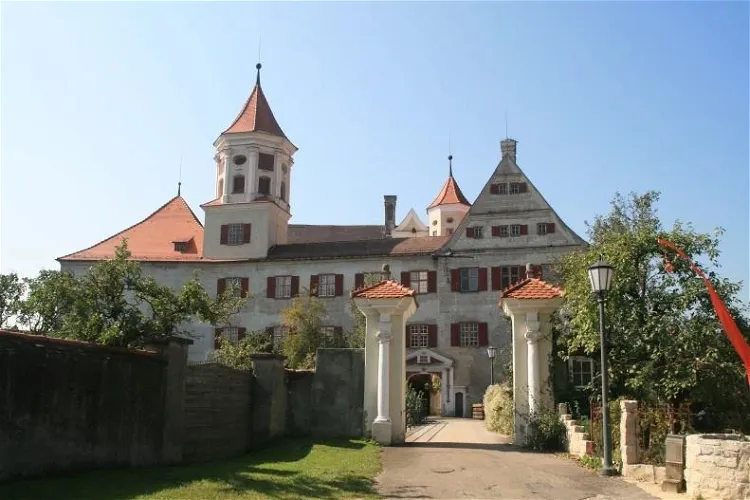
Brenz Castle
Sontheim an der BrenzBrenz Castle, a Renaissance castle, is situated in the Brenz an der Brenz borough of Sontheim in the Heidenheim district of Baden-Württemberg, Germany. This historical structure offers a glimpse into the architectural style of the Renaissance period and is a significant landmark in the region.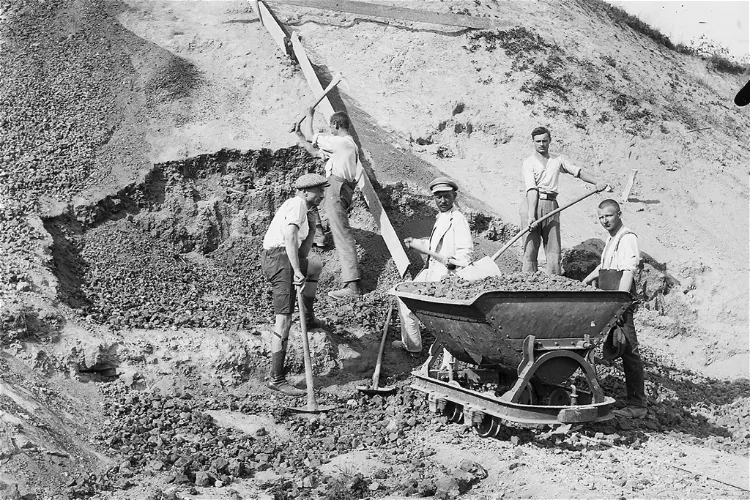
Museum Auberlehaus in Trossingen
TrossingenThe Auberlehaus is a historic building located in Trossingen, which is home to a museum that showcases several significant exhibits. This museum is a testament to the rich history and culture of the region, offering visitors a chance to delve into the past and gain a deeper understanding of the area's heritage.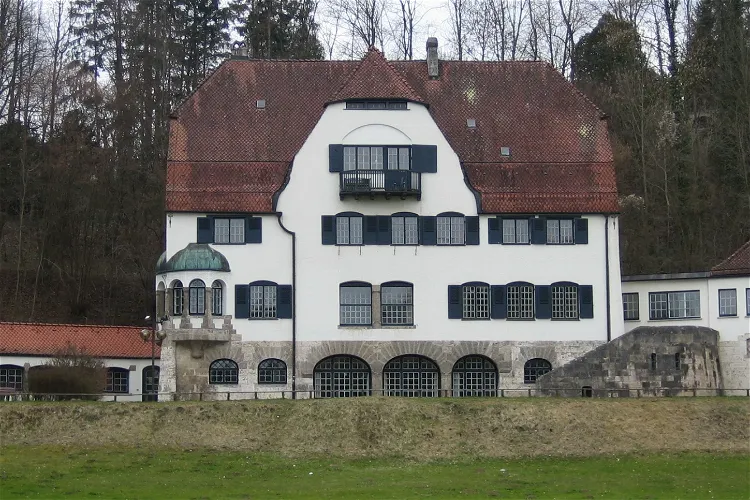
Rommel Museum, Blaustein
BlausteinThe Rommel Museum, which was established in 1989, underwent a significant redesign in 2019. As part of this transformation, it was renamed as Museum Lebenslinien. This change marked a new chapter in the museum's history, reflecting its evolving focus and commitment to showcasing a broader range of historical figures and themes.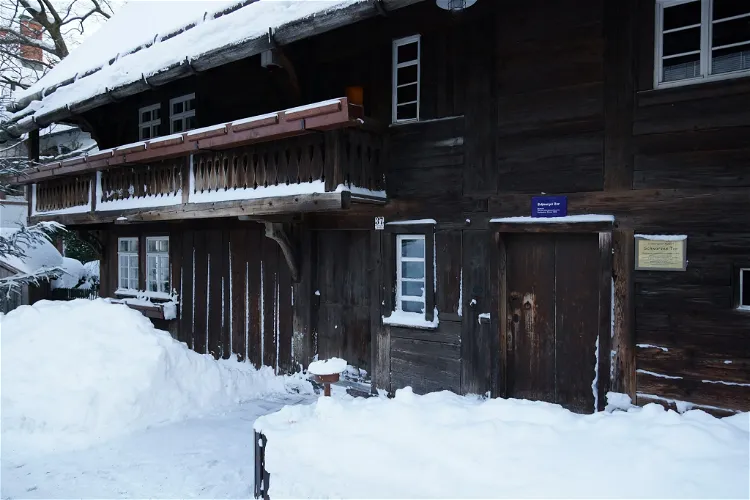
Heimatmuseum Schwarzes Tor
St. Georgen im SchwarzwaldThe Heimatmuseum “Schwarzes Tor” in Sankt Georgen in the Black Forest is a unique museum that offers visitors a chance to step back in time. Housed in an original Black Forest farmhouse from the 19th century, the museum provides a glimpse into the life and times of the people who lived there during that period. The museum is located in the city center of Sankt Georgen, making it easily accessible for tourists.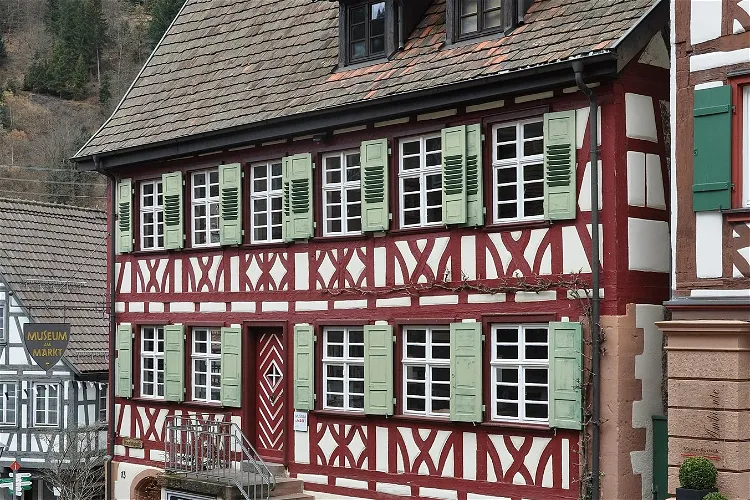
Museum am Markt
SchiltachThe Museum am Markt is situated in the historic marketplace of Schiltach, a town nestled in the Black Forest region of Baden-Württemberg. This location offers visitors a chance to explore the museum within the context of the town's rich history and picturesque surroundings.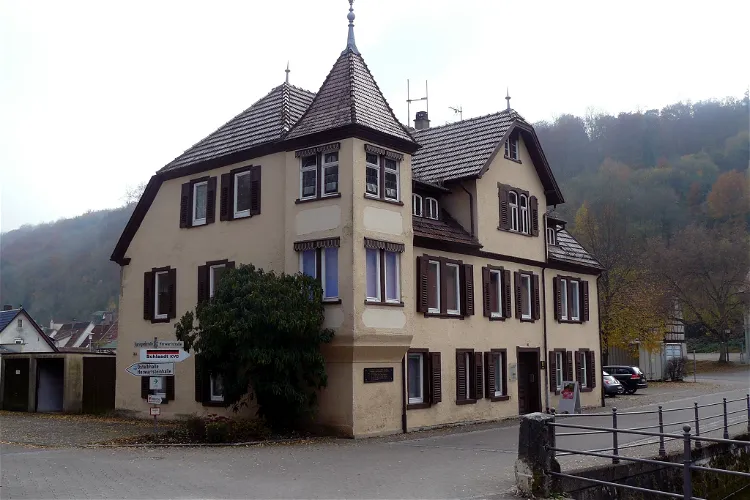
Georg-Elser-Gedenkstätte
KönigsbronnThe Georg Elser Memorial in Königsbronn is a significant site of remembrance and research. It is dedicated to Georg Elser, who on November 8, 1939, attempted a nearly successful bomb attack on Adolf Hitler and almost the entire Nazi leadership. This historical event is a key part of the narrative presented at the memorial, providing visitors with a deep understanding of Elser's actions and the historical context in which they occurred.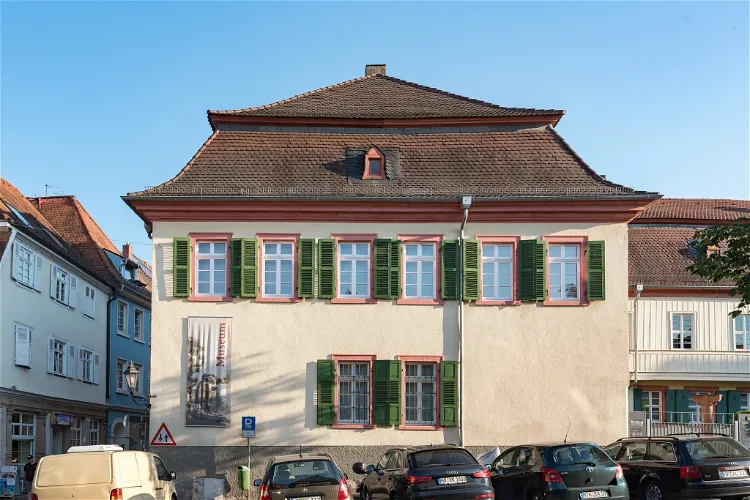
Museum Weinheim
WeinheimThe Museum of the City of Weinheim is housed in the historic Deutschordenshaus, a building constructed in 1710. This building is located in the monument-protected old town of Weinheim, offering visitors a glimpse into the city's rich history even before they step inside the museum.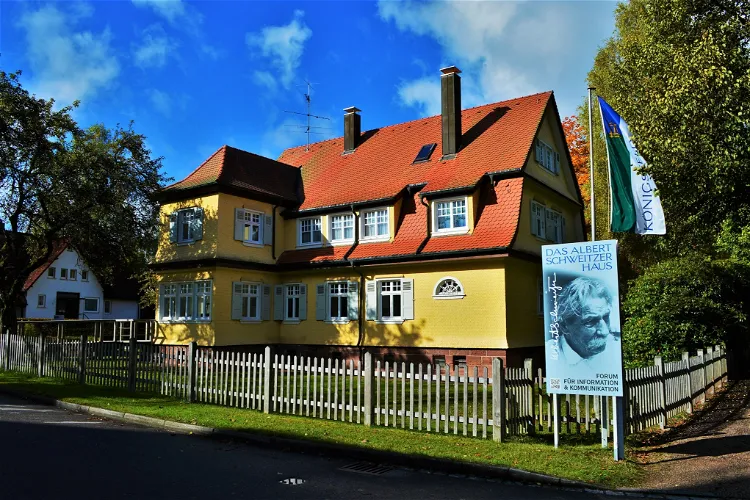
Albert Schweitzer Haus
Königsfeld im SchwarzwaldThe Albert-Schweitzer-Haus in Königsfeld im Schwarzwald serves multiple purposes as a museum, memorial site, and event venue. It was commissioned as a residence by Albert Schweitzer himself. Today, it stands as a testament to his life and work, offering visitors a unique insight into his world.
Weinbau Museum
StuttgartThe Weinbaumuseum Stuttgart is a museum that shows an exhibition on historic and modern viticulture in Stuttgart. The musuem aims to present the regional characteristics of wine production. The museum belongs to the state capital Stuttgart and is housed in a half-timbered house that was built in 190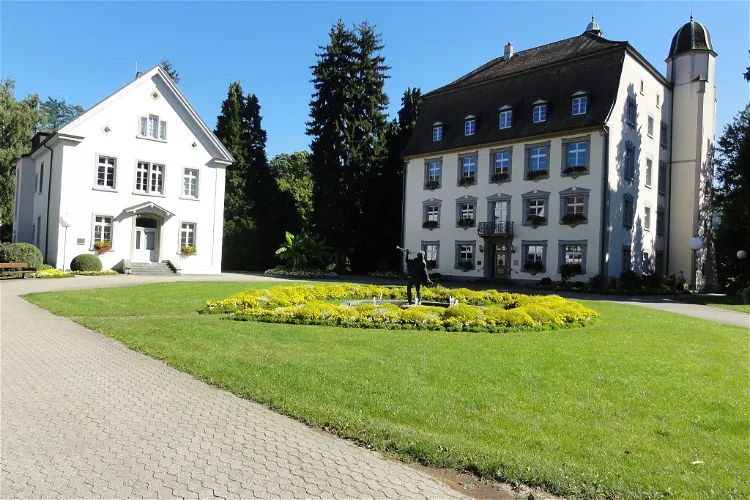
Trompetenmuseum
Bad SäckingenSchloss Schönau, also known as Schönauer Schloss, Schloss Säckingen or Trompeterschlößchen, is a castle located in the spa town of Bad Säckingen in the Waldshut district in Baden-Württemberg. The castle was built from 1600 to 1680 by Hans Kaspar von Schönau and has largely remained intact despite numerous renovations in later years. This historical building offers a glimpse into the architectural style of the 17th century and the changes it underwent over the centuries.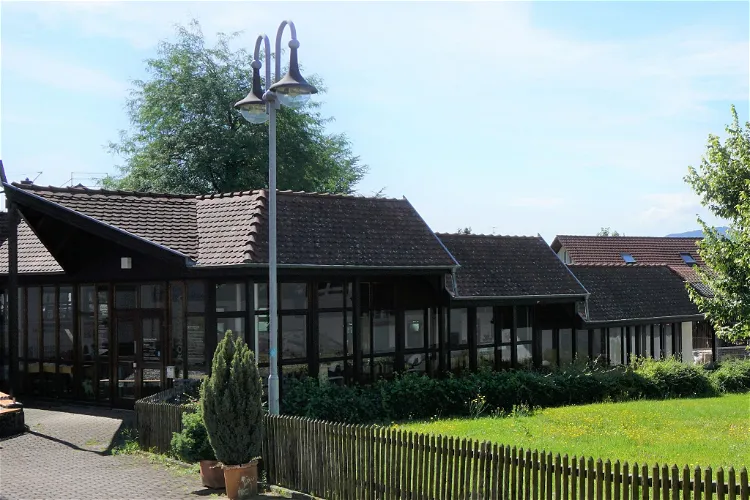
Regionalmuseum Römervilla Grenzach
GrenzachThe Regionalmuseum Römervilla is a Roman museum located in Grenzach-Wyhlen, in the district of Lörrach. The museum is centered around an excavated "villa urbana", a type of Roman city dwelling. This villa is considered one of the most significant Roman-era excavations in the area south of Freiburg im Breisgau.
Schlossmuseum Ellwangen
Ellwangen (Jagst)Schloss ob Ellwangen, located in the east of Württemberg, has a rich history dating back to 1460. It served as the residence and seat of power for the Prince-Provosts of the Prince-Provostship of Ellwangen. From 1802/1803 to 1842, it was used as the electoral and royal residence. This historical significance adds to the charm and allure of the castle, making it a fascinating destination for tourists interested in history and architecture.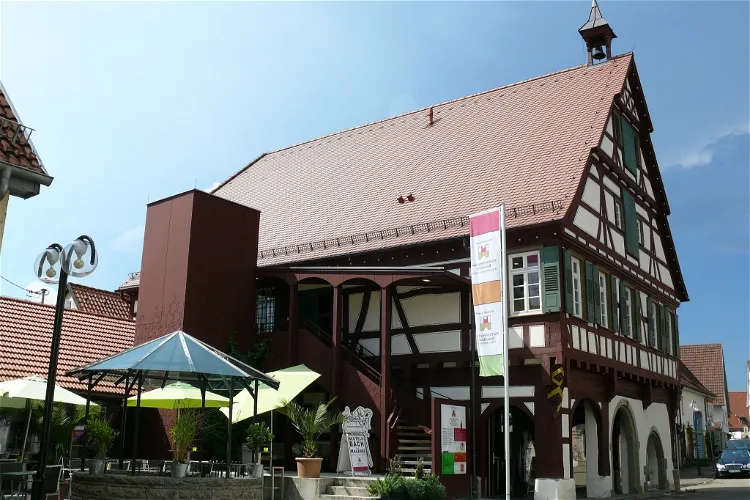
Württemberg-Haus Beutelsbach
BeutelsbachThe Württemberg-Haus is a protected monument situated in the Beutelsbach district of Weinstadt. This historic building, once the town hall of the village, is now a museum. Its location in the historic center of Beutelsbach, east of the Stiftskirche, makes it a significant landmark in the area.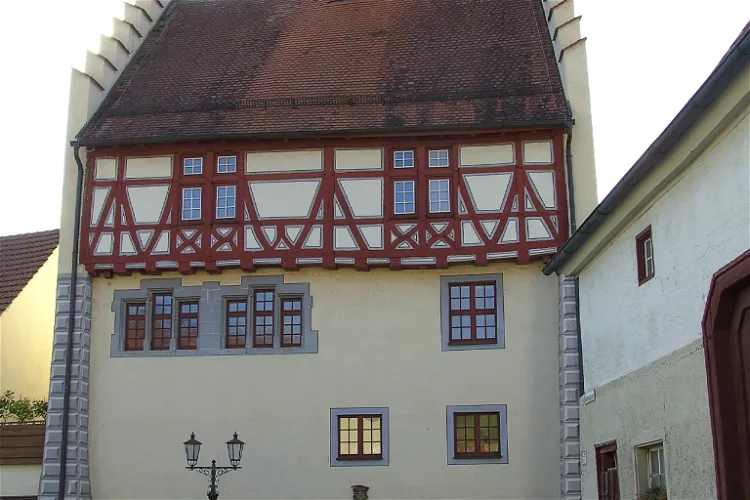
Museum Oberes Donautal im Ifflinger Schloss
Fridingen an der DonauThe Ifflinger Schloss, located in the municipality of Fridingen an der Donau, is a residential tower castle with a rich history. It was constructed around the year 1330 by Heinrich von Hohenberg, complete with an enclosure and a moat. This historical structure offers a glimpse into the architectural styles and defensive strategies of the Middle Ages.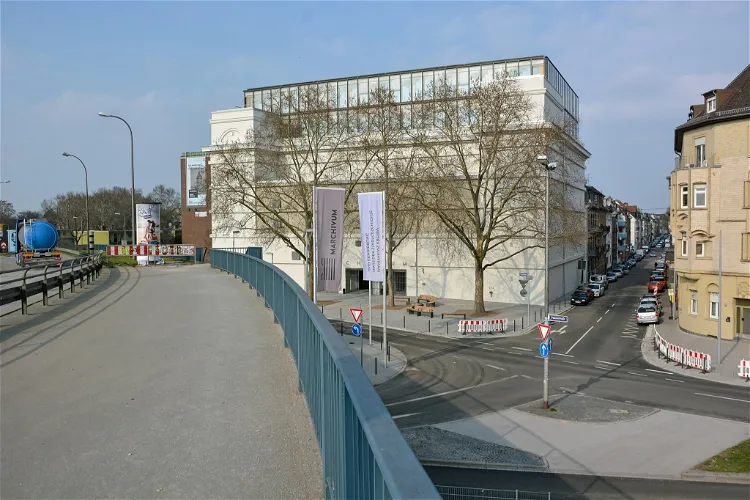
Marchivum
MannheimThe MARCHIVUM is home to extensive collections and stocks, providing services for research and mediation. It also features exhibition areas that showcase the city's history and the Nazi era. These exhibitions, along with seminars, lectures, city history publications, and research projects, offer a comprehensive understanding of Mannheim's past.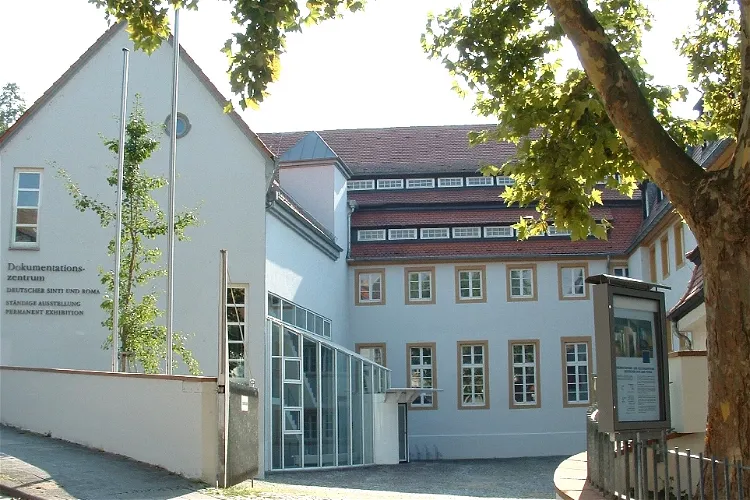
Documentation and Cultural Center of German Sinti and Roma
HeidelbergThe Documentation and Cultural Center of German Sinti and Roma is housed in a historic, protected merchant building from the 18th century. It is located in the old town of Heidelberg, slightly below the famous Heidelberg Castle. The location itself is steeped in history, adding to the overall experience of the visit.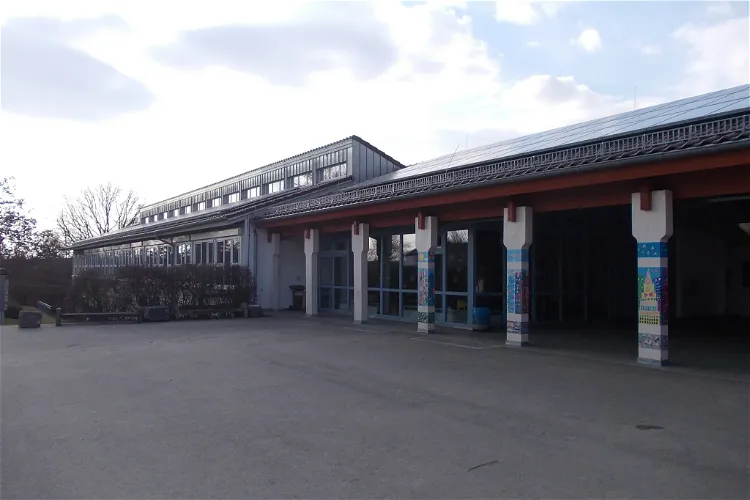
Römermuseum in der Schule
Ehingen (Donau)The Römermuseum in der Schule is a unique museum situated within a primary school in the Rißtissen district of Ehingen, a city in Baden-Württemberg. This small archaeological museum offers a unique insight into the region's past, making it an interesting destination for those interested in history and archaeology.
Archäologisches Landesmuseum
RastattThe Archäologische Landesmuseum Baden-Württemberg (ALM) is a significant institution in the region, tasked with the responsibility of preserving, researching, and presenting archaeological finds from Baden-Württemberg. This museum is one of only two historically oriented museums with a jurisdiction for the entire state of Baden-Württemberg. It offers a unique opportunity for visitors to explore the rich archaeological history of the region.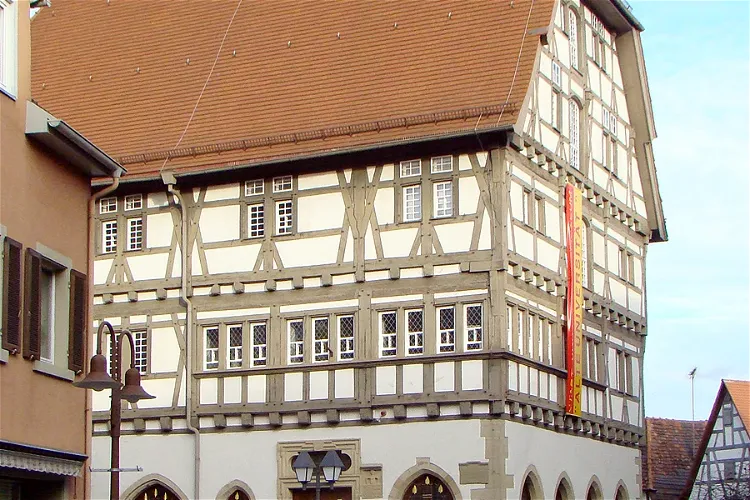
Alte Universität
EppingenThe Alte Universität in Eppingen, located in northern Baden-Württemberg, is a historical site with a rich past. This 15th-century half-timbered house served as a temporary location for the University of Heidelberg during a plague epidemic in 1564/65. This historical event adds a unique layer to the building's history, making it an interesting site for tourists interested in history and architecture.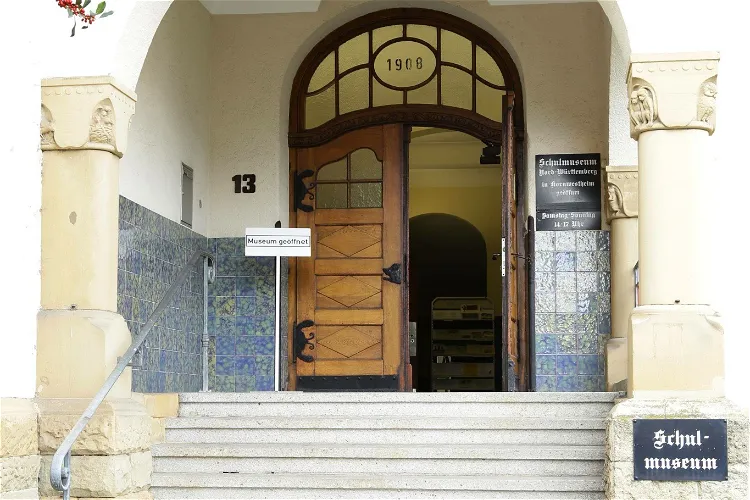
Schulmuseum Nordwürttemberg
KornwestheimThe Schulmuseum Nordwürttemberg, located in the city of Kornwestheim, offers visitors a comprehensive overview of the evolution of the Württemberg primary school system, from the Reformation era to the present day. This is all set within the historical ambiance of a schoolhouse that is over a hundred years old, providing a unique and authentic experience.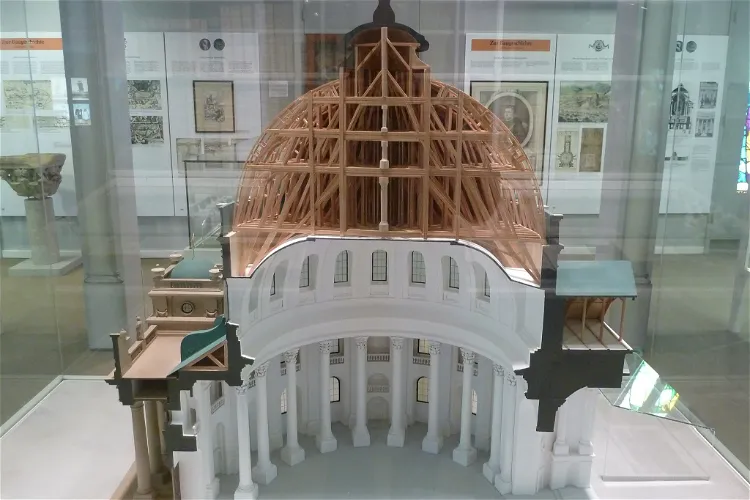
Kreismuseum St. Blasien
St. BlasienThe Kreismuseum St. Blasien is a local museum situated in the town of St. Blasien, in close proximity to the St. Blasien Cathedral. This location offers tourists the opportunity to explore both the museum and the cathedral during their visit, providing a comprehensive cultural experience.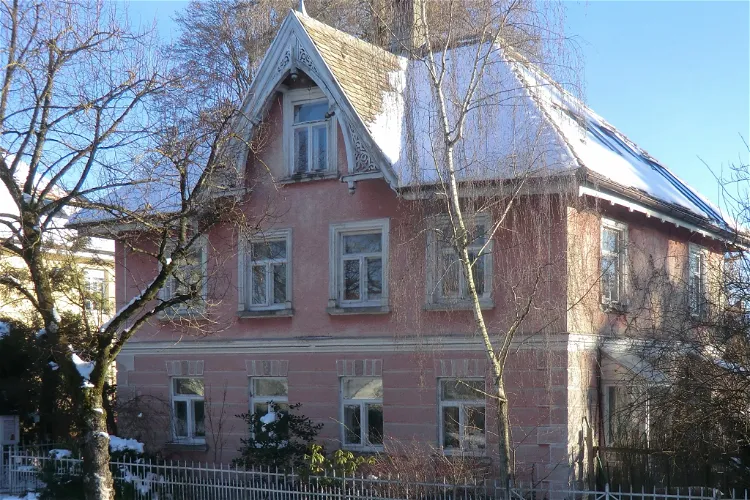
Sepp-Mahler-Museum
Bad WurzachThe Leper House, the birthplace of Sepp Mahler, was inaugurated as a museum of the city of Bad Wurzach in 1987. The museum showcases the life and living culture of the place, providing visitors with a glimpse into the past. It is a significant cultural landmark that offers insights into the life and works of Sepp Mahler.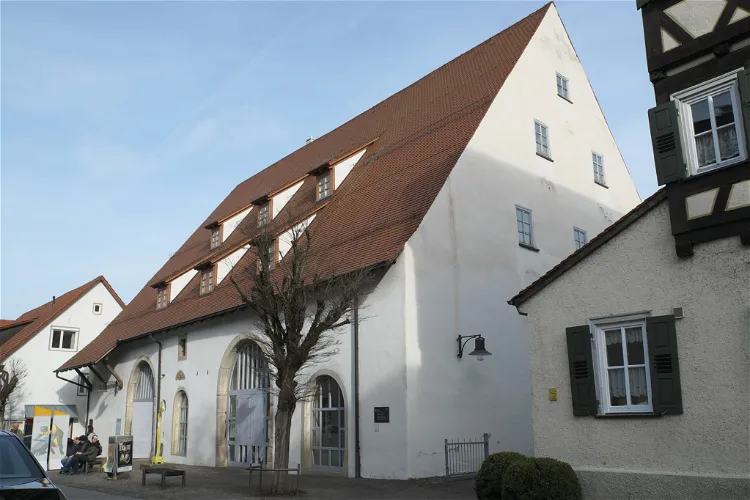
Zehntscheuer Balingen
BalingenThe Zehntscheune in Balingen, located at Neue Straße 59, is a protected cultural monument. This historical building is a significant part of the city's heritage and offers a glimpse into its past. It is a long, massive structure with several differently sized arched doors facing the street. The building is crowned with a multi-storey saddle roof.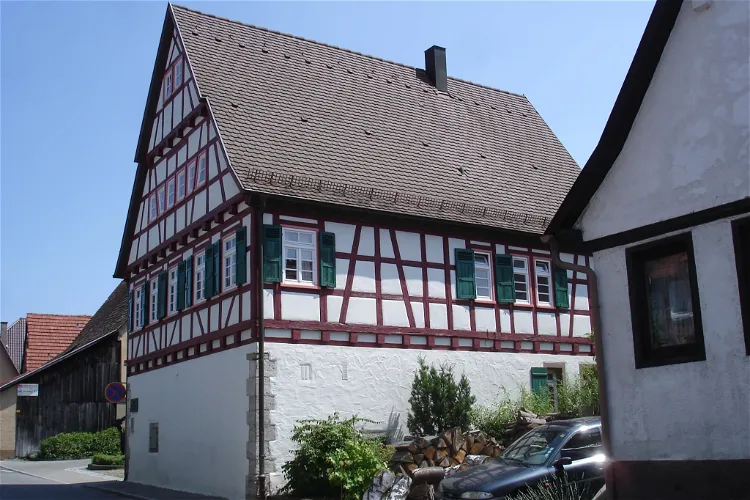
Christian-Wagner-Haus
LeonbergThe Christian-Wagner-Haus in Warmbronn is a significant historical site as it was the birthplace and residence of the renowned writer Christian Wagner. The house was opened as a poet's museum in 1983, offering visitors a glimpse into the life and works of Wagner.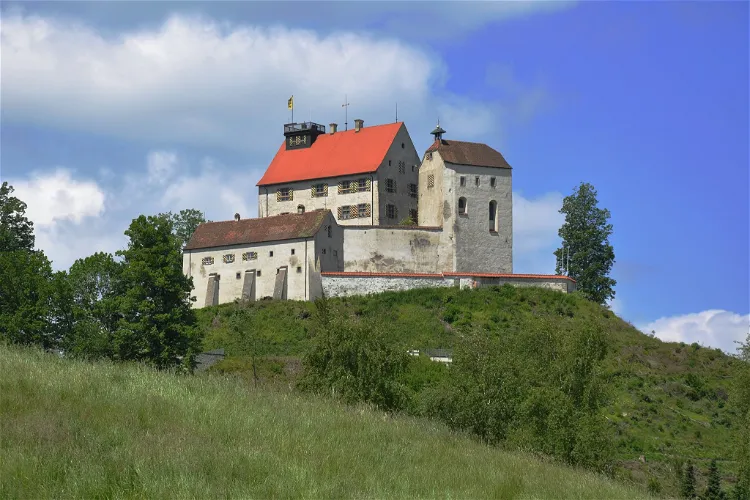
Waldburg Castle
WaldburgWaldburg Castle, a 12th-century structure, is the ancestral home of the House of Waldburg. It is recognized as one of the best preserved medieval buildings, offering a unique glimpse into the past. The castle's rich history and architectural grandeur make it a fascinating destination for history enthusiasts and architecture lovers alike.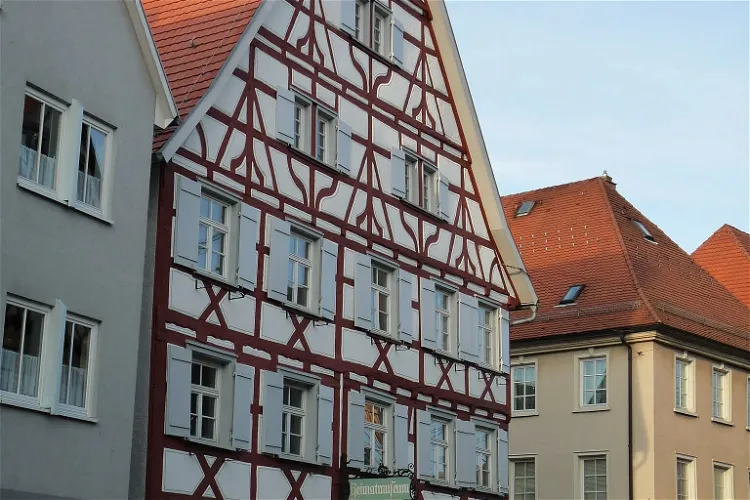
Alte Posthalterei - Stadtmuseum Mengen
MengenThe Thurn- und Taxis’sche Posthalterei, also known as Alte Posthalterei, is a protected monument situated in the heart of Mengen city at the intersection of Hauptstraße and Pfarrstraße. This historic building, dating back to 1702, is a significant part of the city's heritage and offers a glimpse into its past.- 143
Museum im Ursula-Stift
GussenstadtThe Museum im Ursula-Stift in Gussenstadt holds the distinction of being the oldest museum of its kind in Württemberg. It was established in 1911 by Dr. phil. h. c. Georg Thierer, who is also the author of the two-volume local chronicle of Gussenstadt. This historical significance adds a layer of depth to the museum's exhibits, making it a fascinating destination for those interested in the region's history. 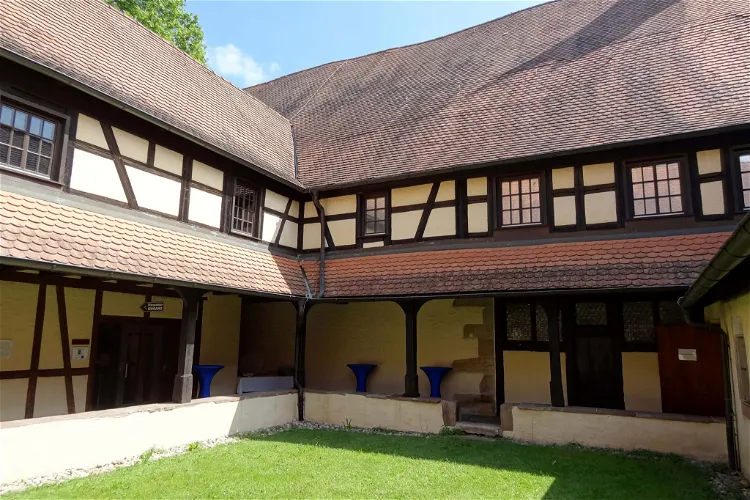
Black Forest Costume Museum
Haslach im KinzigtalThe Black Forest Costume Museum, also known as Schwarzwälder Trachtenmuseum, is situated in the building of the former Capuchin abbey in Haslach im Kinzigtal. This location is in the Ortenaukreis county, which is part of the Baden-Württemberg region in southern Germany. The museum is easily accessible and offers a unique insight into the history and culture of the region.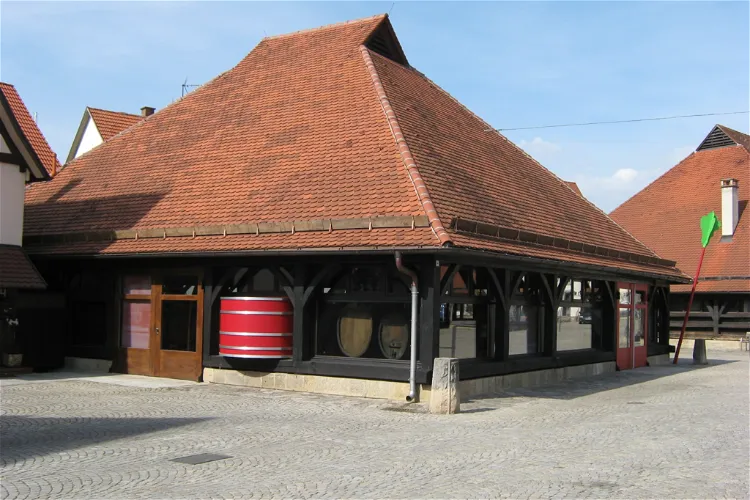
Weinbaumuseum Metzingen
MetzingenThe Weinbaumuseum Metzingen is situated in the Herrschaftskelter at the Kelterplatz in Metzingen. This location is not only significant for its historical value but also for its central position in the city, making it easily accessible for visitors.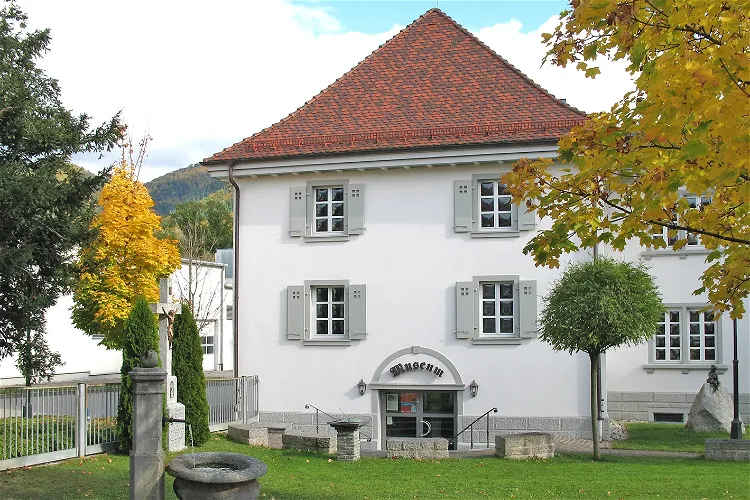
Brennet Textilmuseum Wehr-Baden
WehrThe Brennet Textile Museum, which was inaugurated in 2001, is situated in the heart of Wehr, on the premises of the Brennet AG weaving mill. This location offers visitors a unique opportunity to explore the rich history of the textile industry in the region, right where it happened.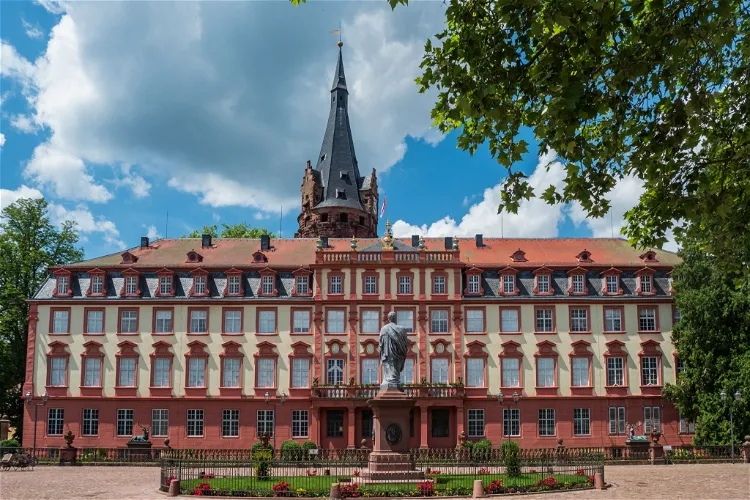
Erbach Palace
ErbachErbach Palace, located in Erbach im Odenwald, serves as the residence of the Count of Erbach. This historic palace is a significant landmark in the region and offers a glimpse into the aristocratic life of the past.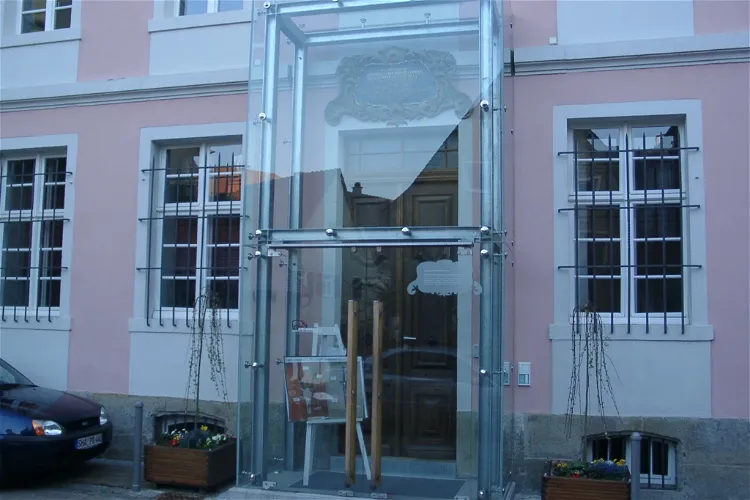
Sandelsches Museum Kirchberg an der Jagst
Kirchberg an der JagstThe Sandelsche Museum in Kirchberg an der Jagst is a local museum supported by the city. It has been housed in the Old School, a baroque building dating back to 1748, since the years 1972/73. This historical setting adds a unique charm to the museum, making it an interesting destination for tourists who appreciate architecture and history.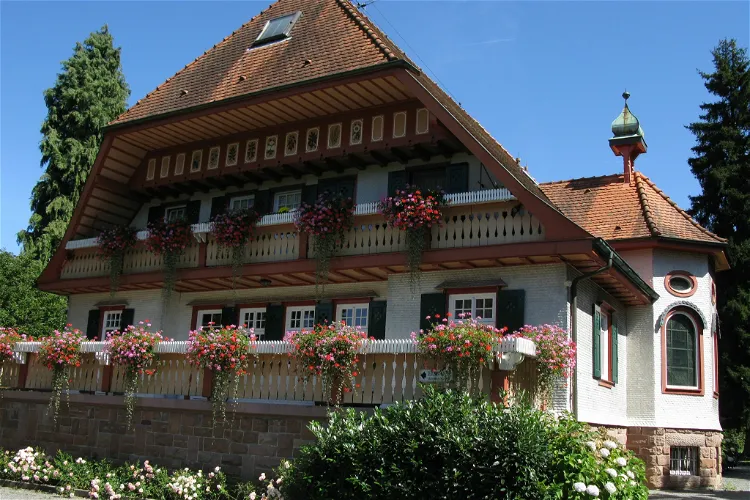
Hansjakob-Museum Freihof
Haslach im KinzigtalThe Museum Freihof in Haslach im Kinzigtal is a place where visitors can learn about the life and work of Heinrich Hansjakob, a priest, politician, historian, local writer, and folklorist. The museum also showcases the works of painters Carl Sandhaas and Otto Laible. This provides a comprehensive view of the cultural and historical significance of these figures.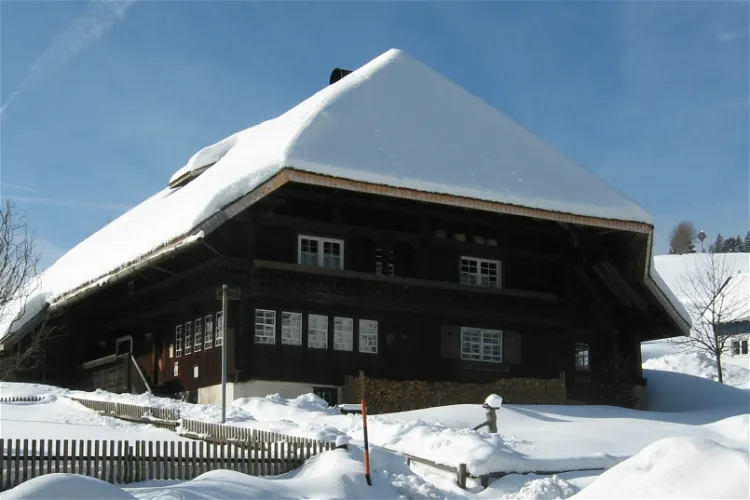
Holzschneflermuseum Resenhof
OberlehenThe Resenhof, located in Bernau-Oberlehen in the South Black Forest in the Waldshut district, is a historic Black Forest house that has been serving as a museum since 1977. This location offers a unique opportunity to explore the rich history and culture of the region.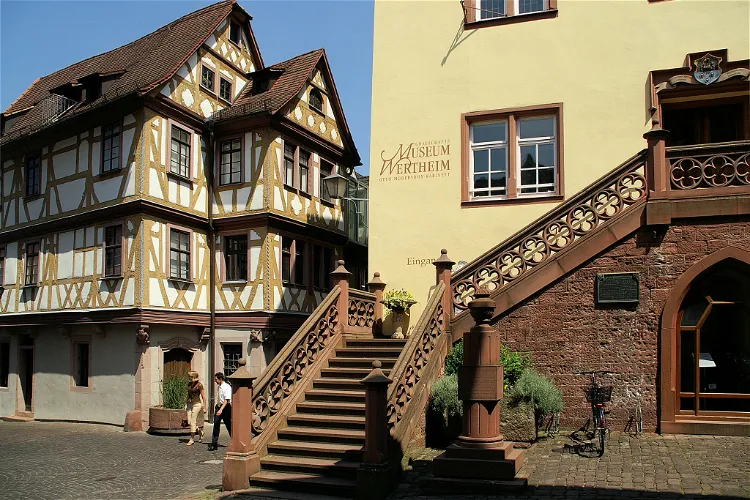
Grafschaftsmuseum Wertheim
WertheimThe Grafschaftsmuseum Wertheim is housed in a complex of buildings dating back to the 16th century. This includes the Old Town Hall, the House of the Four Crowned, and the Blue House, a half-timbered house painted with smalt blue. The museum is conveniently located in the old town of Wertheim, a short distance from the market square, making it easily accessible for visitors.- 152
Jewish Museum
Emmendingen (Kernstadt)The Jewish Museum of Emmendingen is situated in Baden-Wurttemberg, Germany. It is dedicated to narrating the history and culture of the city's Jewish community. The museum provides a comprehensive insight into the Jewish community's life and traditions, making it a significant cultural and historical site. - 153
Wassertor-Museum
Isny im AllgäuThe Wassertorturm, or Water Gate Tower, served as the northern main entrance to the city fortifications of the imperial city of Isny im Allgäu. This tower holds significant historical value and is listed as a cultural monument in Isny im Allgäu, thus it is protected as a monument. This makes it an interesting site for tourists who are interested in history and architecture. - 154
Polizeimuseum Stuttgart
StuttgartThe Polizeimuseum Stuttgart (Police Museum Stuttgart) is a museum in Stuttgart in Germany that has an archive of more than 90,000 historical pictures, a library with more than 1,000 books, journals and essays as well as about 300 media related pieces opf the Stuttgart police. The Police Museum Stutt - 155
Heimatmuseum im Herrenhaus Hausach
Hausach